A comprehensive guide to part-time PhDs
Doing a PhD part-time can be an attractive option for many reasons. However, part-time PhDs are less common than full-time ones, and there tends to be a lack of information on this option. This guide to part-time PhDs answers the most common questions that prospective part-time PhD candidates have.

The difference between a part-time and a full-time PhD
How much work is a part-time phd, how long does it take to do a phd part-time, where is it possible to do a phd part-time, benefits of a part-time phd, disadvantages of a part-time phds, is it worth doing a part-time phd, skills necessary for completing a phd part-time, conditions for success in a part-time phd, online part-time phd programmes, ten questions to ask yourself before embarking on a part-time phd.
The main difference between a part-time and a full-time PhD is typically the amount of time that a student spends per week on PhD-related tasks. The typical length of a full-time work week is five 8-hour days, comprising 40 hours in total. In some countries, this includes breaks. Thus, 38-40 hours/week can generally be considered full-time employment.
A part-time PhD carries fewer hours per week than full-time employment.
Precise definitions of part-time work differ. While some consider part-time employment as anything less than 38 hours/week, the OECD for instance defines part-time workers as those who work less than 30 hours/week.
Some universities have minimum requirements for part-time PhDs, for example, a minimum of 20 hours/week. Others, however, are more flexible. They allow part-time PhD candidates to spend anything between a few hours to several days per week on their part-time PhD studies.
Coursework that is required in PhD programmes is generally adjusted to part-time candidates and stretched over a longer period. The same is true for certain deadlines and comprehensive exams if required.
The degree that is awarded upon successful completion of a part-time PhD is the same as those being awarded for completing full-time programmes.
Most degree certificates don’t even mention that a PhD was pursued on a part-time basis. There is no reason to worry that a part-time PhD degree may be perceived as worth less than a full-time one.
A part-time PhD requires pretty much the same amount of work as a full-time PhD. Part-time PhD programmes are spread out over a longer period, but the requirements in terms of credits and output ( a monograph or cumulative dissertation ) are usually the same.
Part-time PhD candidates are often highly aware of their time limitations. In turn, they may be better at utilizing their limited time during the week. For instance by minimizing procrastination, prioritizing tasks and making strategic decisions. However, this is difficult to generalise.
Part-time PhD students may be more inclined to work during evenings and weekends.
Other responsibilities during the ‘normal’ working hours result in less attention to PhD-related work. And sometimes, PhD work requires several hours of uninterrupted deep work.
In some cases, the lack of opportunities to focus on the PhD for a longer period can increase frustrations and stress levels. This is particularly true when part-time PhD students start together with a cohort of full-time PhD students and compare their progress with that of their full-time peers.
Ultimately, how much work a part-time PhD requires depends very much on a student’s research project, personality, efficiency, subjective perception of workload and stress, supervision, luck with experiments, and so on. This does not differ from a full-time PhD.
In most cases, a part-time PhD takes longer than a full-time PhD. A general rule of thumb is that the fewer hours someone spends on a PhD per week, the longer it takes to complete it.
The number of years that full-time PhD students take to complete a PhD varies. Some finish in three years. Others require four, five or more years. Thus, there is a huge variation in the time it takes to finish a PhD. The same is true for part-time PhDs.
There are also differences between universities. Some universities have a strict programme that takes, for instance, three years for full-time PhD students and six years for part-time PhD students.
Other universities adapt to the specific circumstances of individual PhD candidates. They may allow someone to finish a part-time PhD in three years as long as all requirements are met. But they may also be okay with a part-time candidate who spends a decade on his or her PhD studies.
Can you complete a part-time PhD programme? Yes, absolutely.
But due to the vast differences between universities as well as PhD programmes, it is essential to inform yourself properly before applying for a part-time PhD.
The regulations in terms of length of a part-time PhD have a major effect on a PhD trajectory, time planning, tuition fees if applicable, etcetera.
There are plenty of opportunities to do a PhD part-time, but the specific opportunities and arrangements depend very much on individual universities.
Some universities advertise specific part-time PhD programmes on their web pages. Or, with a little bit of digging, provide information online for those who are interested in part-time PhDs.
For other universities, it is difficult to find any information on part-time PhD programmes online. This does not always mean that there are no opportunities. Sometimes, it requires sending emails to the admissions office, or contacting a potential PhD supervisor directly to ask for part-time possibilities.
There are also differences in national contexts. In some countries, for instance, in Germany, part-time PhD studies are often the norm. In Germany, many paid positions exist that encompass 60% of a full-time equivalent: time during which a PhD student is required to work in a lab or assist a professor. In the remaining 40% of the time, which is unpaid, a PhD student is expected to work on a dissertation.
In some other countries, PhD students tend to be employed in the public sector, receive a salary and make pension contributions. In those cases, they tend to fall under the same regulations as the non-academic workforce. This can mean, for instance, that they have the right to change their contract to part-time, for instance in the case of care responsibilities.
There are many benefits to doing a PhD part-time. Some of the most common advantages are
- More secure finances: Many full-time PhD students experience financial insecurities because PhD scholarships are often not enough to cover living expenses, or do not cover the whole PhD trajectory. Part-time PhD students often work next to their PhD studies which provide additional income and a layer of financial security.
- Improved employability: This includes industry employability and employability in academia. Industry employability is enhanced if someone already gains substantial work experience outside academia, through working in a certain profession while doing a part-time PhD. Employability in academia is enhanced if someone already gains academic work experience (for example as a research assistant) and teaching experience (for example as a junior lecturer or teaching assistant) while doing a part-time PhD.
- Flexibility: Doing a PhD part-time tends to provide increased flexibility. For instance, students who have care responsibilities are more likely to be able to combine their PhD studies with their other responsibilities on a part-time basis.
- Efficiency: The advantage of many part-time PhDs is that they are very aware of their time limitations and force themselves to be strategic in their choices. Part-time PhD students also often benefit from existing work experience and tend to be a bit older than full-time students. Combined, they sometimes are more confident and struggle less with imposter syndrome. Since procrastination is essentially linked to a fear of failure, part-time PhD students on average may be more confident, suffer less from procrastination and are therefore able to work more efficiently.
There are also disadvantages and challenges in part-time PhDs. Some of the most common disadvantages of doing a PhD part-time are:
- Difficulty to maintain a work-life balance: ‘Getting it all done’ is always challenging. Adding a part-time PhD to existing tasks, activities and responsibilities can negatively affect a person’s work-life balance. Part-time PhDs frequently require multi-tasking, which can interrupt the flow of work and lead to mistakes. Furthermore, evenings, weekends and holidays may be the only times when uninterrupted PhD work for several hours or days is possible. When part-time PhD students are not very good with boundary setting, they can easily feel overwhelmed and as if they can never take a break.
- Tuition fees: While not all PhD students (regardless of whether full-time or part-time) have to pay tuition fees, many do. Tuition fees tend to be adjusted in part-time programmes. Nonetheless, paying tuition fees for several years can be a financial burden. In addition, part-time PhD students are not always eligible for all scholarships and funding opportunities.
- Less supervision: Part-time PhD students often work even more independently than their full-time counterparts. Of course, the amount of supervision differs for full-time PhD students as well. However, a simple reason for less supervision is simply that part-time PhD students are not always physically present in a lab or department. They have less spontaneous interactions with their supervisors and other professors. It reduces the opportunities to ask a quick question or get feedback on a small issue. Part-time PhD students may be more reliant on more formal, scheduled meetings every few weeks or months.
- Feelings of isolation: Part-time PhD students may feel disconnected and isolated due to a lot of independent work, less physical presence and opportunities to connect with colleagues and peers. Furthermore, part-time PhDs tend to be in the minority, as full-time PhDs are still more common. This means that part-time PhDs may feel misunderstood and have no one to share their unique experiences and challenges with.
Following your curiosities and researching a topic in-depth can be a wonderful thing.
Yet, the question of whether a PhD part-time is worth doing or not is difficult to answer. It depends on the unique situation and ambition of each person in question.
Some people embark on a PhD part-time to progress in their career. Some people hope for a financial reward after completing a PhD part-time. Some people intend to change careers and use a part-time PhD to start the process while still earning money in a different job. Some people look for a challenge and embark on a part-time PhD for self-fulfilment. Some people have no other option but to do a PhD part-time.
Every person has to decide for him- or herself whether it is worth it, sensible and feasible. The decision requires a lot of self-reflection, and financial and life planning.
The decision to do a part-time PhD should not be treated lightly.
Completing a PhD part-time requires several skills. These skills can be learnt. However, a complete lack of these skills at the start of a part-time PhD will make the trajectory much more challenging.
First of all, part-time PhDs benefit from a high degree of self-discipline.
Those who struggle to motivate themselves and to get the smallest task done without any external pressure, might not be the best candidates for part-time PhDs. Part-time PhD work requires a lot of self-discipline as well as self-motivation.
Next, the ability to multi-task and keep a cool head in stressful situations is a big advantage for those who embark on a part-time PhD.
Stressing out easily and feeling easily overwhelmed with many tasks and deadlines, on the other hand, is counterproductive in a part-time PhD.
Furthermore, flexibility and the ability to adapt to different circumstances is pivotal.
Part-time PhD students tend to wear many different hats. They need to be able to switch between different roles and juggle lots of different tasks and responsibilities.
Additionally, not everything will work according to plan. Part-time PhD students have to accept that things do not always work out as expected and have to quickly adapt to new situations.
Lastly, the ability to work independently can make or break a part-time PhD trajectory. Working on a PhD part-time often means working from home, alone, without social interaction and constant feedback opportunities. Not everyone is cut out for this type of work.
A fundamental condition for success in a part-time PhD is the selection of a fitting research topic.
As in any PhD, regardless of whether full- or part-time, a PhD student spends many waking hours on the topic. If the topic is not interesting to the PhD student, and he or she is not passionate about it, motivation to work on it will inevitably decrease over time.
At the same time, the most passionate and skilled PhD student may still struggle if the institutional environment and supervision are suboptimal.
A supportive institutional environment that assists, accommodates, and invests in part-time PhD students can make a world of difference.
Probably even more important than the institutional environment is a good relationship between the part-time PhD student and PhD supervisors.
The quality and quantity of supervision matters, but also the social compatibility between students and supervisor/s. Therefore, applying to a programme without having ever met the prospective supervisor in person is a risky business.
If a prospective PhD student intends to continue working part-time in a different job, all parties should be informed and agree with the arrangements. If there is a connection between the PhD topic and the job, some employers even enter a formal arrangement that allows the student to do PhD work during some ‘normal’ working hours.
Pulling off a part-time PhD without all parties approving, or even knowing about it, can create a lot of problems along the way.
Lastly, a certain degree of financial security is required. Of course, this depends on the unique financial arrangements made by a part-time PhD. However, if other work, scholarships or grants are not enough to cover living expenses during a part-time PhD, it is not advisable to embark on this journey.
While online, part-time PhD programmes were available before the Covid19 pandemic, they have become much more common in the last two years. There are some strong opinions when it comes to online, part-time PhD programmes.
Proponents of these online programmes highlight how they can help to create a more level playing field . It allows PhD candidates, for instance, to live in a low-cost living area, while following a PhD at a prestigious university in a high-cost of living area.
Opponents lament the decreasing quality of PhD supervision in online PhD programmes. Some argue that doing a PhD increasingly becomes increasingly financialised, with universities collecting tuition fees but not providing adequate support.
However, with everything, this is very difficult to generalise . It requires prospective PhD students who are interested in these programmes to inform themselves thoroughly and to decide on a personal basis whether an online programme is a good fit or not. Speaking with others who already do, or finished, online part-time PhD programmes might be particularly useful.
If you consider embarking on a part-time PhD, your decision can be supported by asking (yourself) the following questions:
- What is my motivation to do a part-time PhD?
- Am I passionate enough about my (potential) research topic to spend several years working on it?
- What are the potential advantages and disadvantages of doing a part-time PhD, and how can I mitigate the disadvantages?
- Do I have enough self-discipline and endurance to do a part-time PhD with limited supervision?
- Do I have the flexibility to incorporate potential coursework into my day-to-day agenda?
- How many hours/week do I want to spend on my PhD, and how many hours can I (afford to) spend on it?
- What are the part-time PhD regulations of the university/universities where I consider applying?
- Is the (potential) PhD supervisor a good fit, and does the institutional environment seem supportive of part-time PhD students?
- How can I finance the part-time PhD?
- What do I want to do after completing the PhD?
Master Academia
Get new content delivered directly to your inbox.
Subscribe and receive Master Academia's quarterly newsletter.
Public speaking in academia and how to practice it
Strong academic networks through shared activities, related articles.
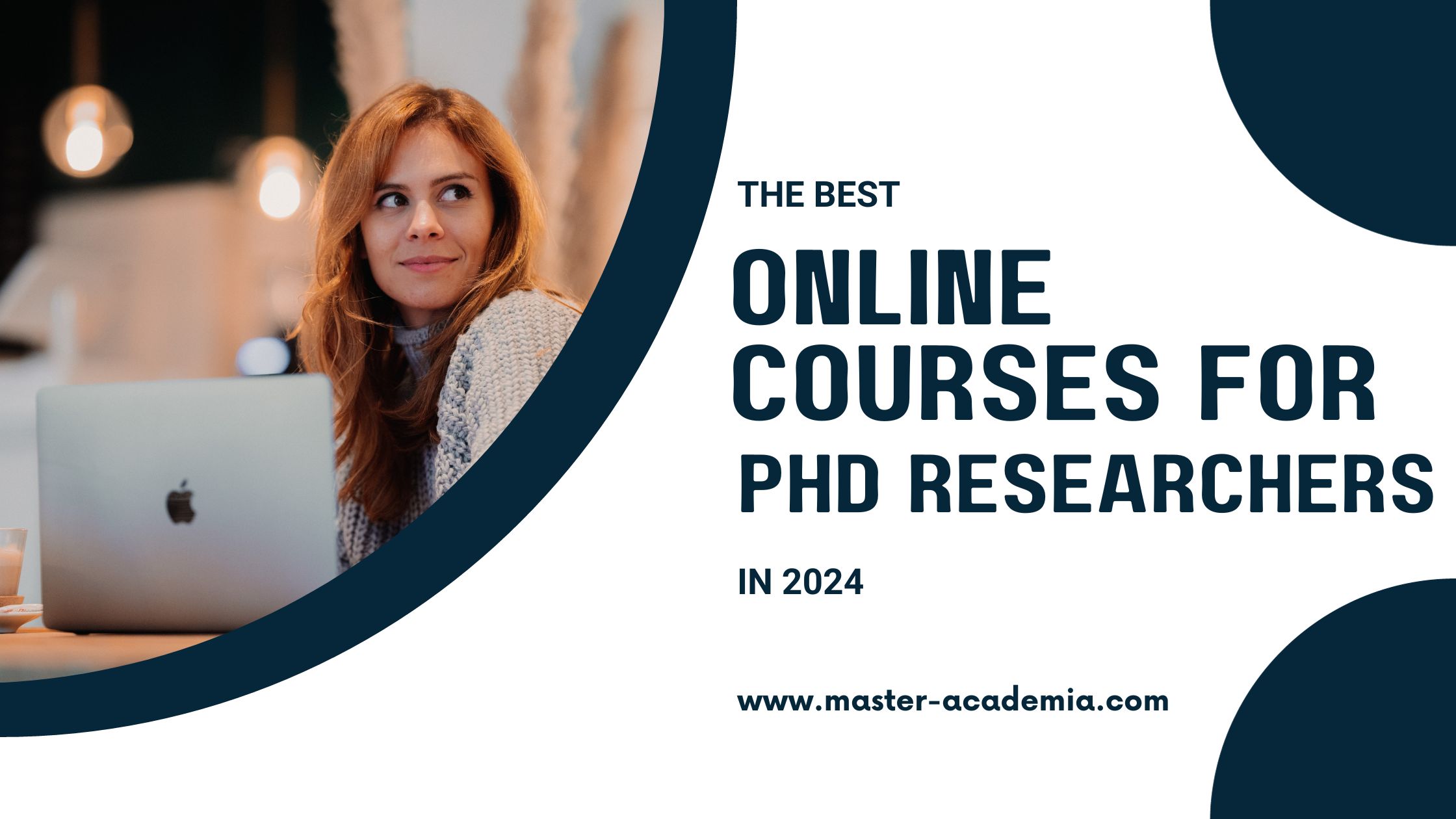
The best online courses for PhD researchers in 2024
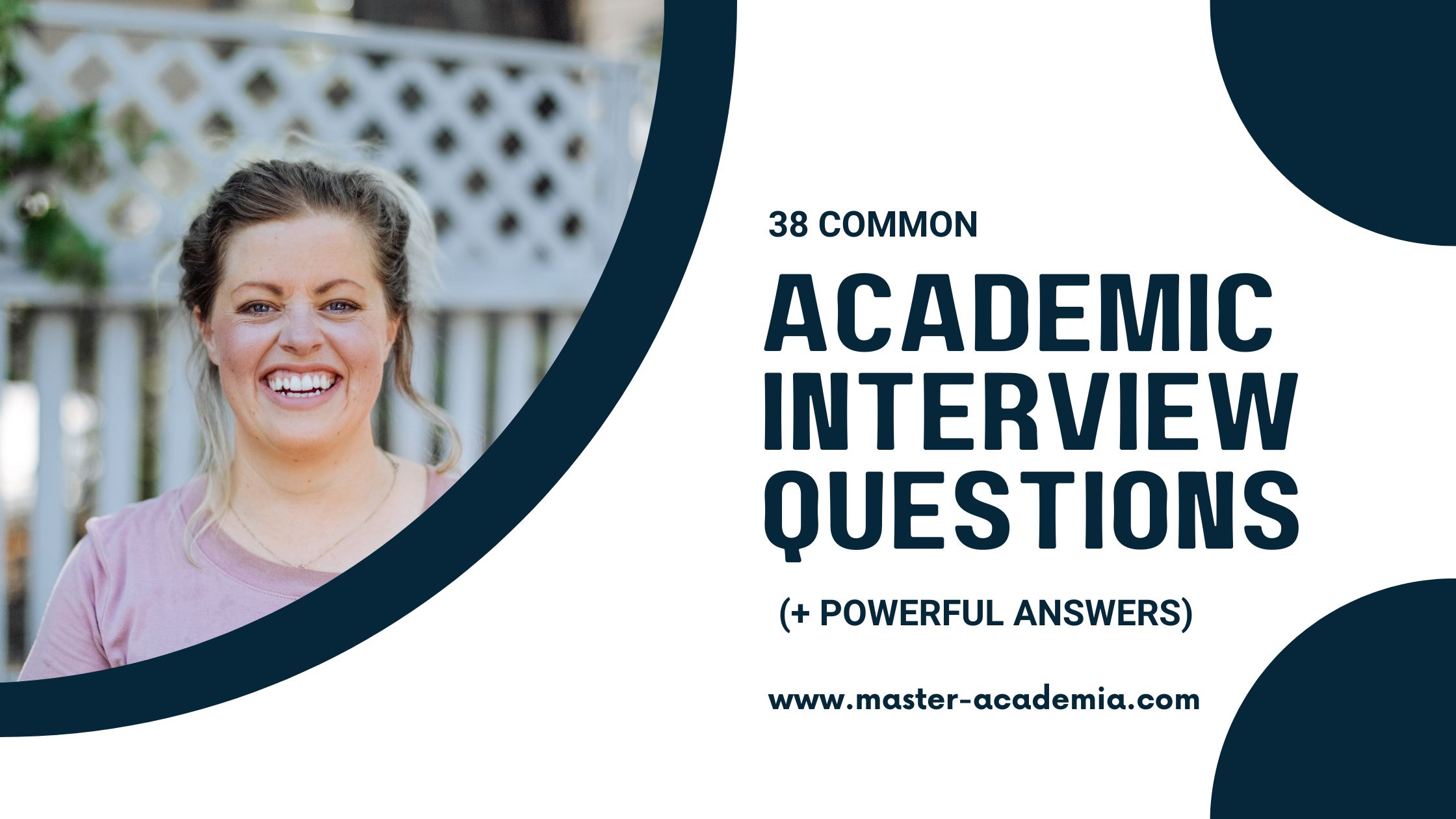
38 common academic job interview questions (+ powerful answers)

Are doctoral summer schools for PhD students worth it?

Deciding between a one- or a two-year master’s degree
25 Best Part Time PhD Programs [2024 Guide]
Explore part time PhD programs. Compare schools and see why you should consider earning your doctorate part time.

If work or other responsibilities have been holding you back from diving headfirst into doctoral studies, consider part time PhD programs instead.
Editorial Listing ShortCode:
You may enroll in an on-campus or online PhD program to earn your doctoral credentials on a schedule that fits your busy lifestyle.
Universities Offering PhD and Other Doctorate Programs Online
Methodology: The following school list is in alphabetical order. To be included, a college or university must be regionally accredited and offer degree programs online or in a hybrid format.
1. Andrews University
Andrews University is a private university in Berrien Springs, Michigan, that is affiliated with the Seventh-day Adventist Church. Founded in 1874, Andrews has a current annual enrollment of 3,366.
Students can pursue 130 undergraduate and 70 graduate majors across eight schools and colleges. Degrees at the bachelor’s, master’s, and doctoral levels are available.
- PhD in Curriculum and Instruction
- PhD in Educational Leadership
- PhD in Higher Education Administration
- PhD in Leadership
Andrews University is accredited by the Higher Learning Commission.
2. Clemson University
Clemson University is a public research university located in Clemson, South Carolina. Founded in 1889, Clemson boasts an annual student enrollment nearing 30,000. U.S. News & World Report ranks Clemson University in 24th place among all public universities.
Students can pursue bachelor’s, master’s, and doctoral degrees across Clemson’s seven schools and colleges.
- PhD in Healthcare Genetics
- PhD in Parks, Recreation and Tourism Management
- PhD in Rhetorics, Communication and Information Design
Clemson University is accredited by the Southern Association of Colleges and Schools Commission on Colleges.
3. George Washington University
Chartered in 1821 by an act of the United States Congress, George Washington University stands today as a private research university with an annual enrollment of more than 27,000. GWU is divided into 14 colleges and schools offering bachelor’s, master’s, and doctoral programs.
The Princeton Review consistently ranks George Washington University as a top college in a number of categories. In addition, GWU has been ranked as one of the Top Universities for Producing Billionaires by the Times Higher Education’s World University Rankings.
- PhD in Nursing
- PhD in Systems Engineering
GW is regionally accredited by the Middle States Commission on Higher Education.
4. Hampton University
Hampton University is a private, historically black university located in Hampton, Virginia, that was founded in 1868. The university is comprised of 10 accredited schools and colleges offering 50 bachelor’s programs, 26 master’s programs, and seven doctoral programs. The Alumni Factor has named Hampton one of the best colleges in Virginia.
- PhD in Business Administration
- PhD in Educational Management
Hampton University is accredited by the Commission on Colleges of the Southern Association of Colleges and Schools.
5. Indiana State University
Indiana State University is a public university located in Terre Haute, Indiana, with a history dating back to 1865. ISU offers more than 100 undergraduate majors and 75 graduate. Students can pursue 20 bachelor’s degrees, 22 master’s degrees, and seven doctoral degrees on campus and online through ISU’s six academic colleges.
- PhD in Educational Administration – Higher Education Leadership
- PhD in Educational Administration – School Administration
- PhD in Technology Management
Indiana State University is accredited by the Higher Learning Commission.
6. Keiser University
Keiser University is a private university based in Fort Lauderdale, Florida. Founded in 1977, Keiser offers bachelor’s, master’s, and doctoral programs available both on campus and online. Money magazine has rated Keiser University one of the top colleges for the money in Florida. Nearly 20,000 students study at Keiser.
- PhD in Criminal Justice and Criminology
- PhD in Industrial and Organizational Psychology
- PhD in Instructional Design and Technology
Keiser University is accredited by the Southern Association of Colleges and Schools Commission on Colleges.
7. Liberty University
Liberty University is a private evangelical Christian university founded in Lynchburg, Virginia, in 1971. The school consists of 17 distinct colleges offering a wide variety of bachelor’s, master’s, and doctoral programs. Programs are divided between 366 on-campus options and 280 online options.
- PhD in Bible Exposition
- PhD in Communication
- PhD in Criminal Justice
- PhD in Criminal Justice – Homeland Security
- PhD in Criminal Justice – Leadership
- PhD in Education – Curriculum and Instruction
- PhD in Education – Instructional Design and Technology
- PhD in Education – Organizational Leadership
- PhD in Education – Special Education
- PhD in Higher Education Administration – Educational Leadership
- PhD in History
- PhD in Nursing – Nursing Education
- PhD in Psychology – Developmental Psychology
- PhD in Psychology – Industrial/Organizational Psychology
- PhD in Psychology – Social Psychology
- PhD in Public Policy
- PhD in Public Policy – Economic Policy
- PhD in Public Policy – Education Policy
- PhD in Public Policy – Foreign Policy
- PhD in Public Policy – National Security
- PhD in Public Policy – Social Policy
- PhD in Strategic Media
- PhD in Theology and Apologetics
Liberty University is accredited by the Southern Association of Colleges and Schools Commission on Colleges.
8. Mississippi State University
Mississippi State University is a public research university located near Starkville, Mississippi, that is classified among RI Doctoral Universities for very high research activity. MSU’s more than 22,000 enrolled students can pursue more than 180 areas of study for bachelor’s, master’s, and doctoral degrees. The school was founded in 1878.
- PhD in Community College Leadership
- PhD in Computational Engineering
- PhD in Electrical and Computer Engineering
- PhD in Engineering – Aerospace Engineering
- PhD in Engineering – Civil Engineering
- PhD in Engineering – Mechanical Engineering
- PhD in Industrial & Systems Engineering
Mississippi State University is accredited by the Southern Association of Colleges and Schools Commission on Colleges.
9. North Carolina A&T State University
North Carolina Agricultural and Technical State University is a public, historically black university located in Greensboro, North Carolina. The school was founded in 1891 by the North Carolina General Assembly. It is ranked among the top historically black colleges and universities (HBCUs) by U.S. News & World Report.
A total of 54 bachelor’s, 29 master’s, and nine doctoral degrees are offered through the school’s eight colleges.
- PhD in Leadership Studies
North Carolina Agricultural and Technical State University is accredited by the Southern Association of Colleges and Schools Commission on Colleges.
10. Texas Tech University
Established in 1923, Texas Tech University is a public research university in Lubbock, Texas, featuring 13 colleges and 60 research centers. The Princeton Review has ranked Texas Tech among the 125 best colleges in the Western United States.
Texas Tech offers 150 options for bachelor’s degrees, 110 options for master’s degrees, and 59 doctoral degree programs.
- PhD in Curriculum and Instructions – Curriculum Studies and Teacher Education
- PhD in Curriculum and Instructions – Language, Diversity & Literacy Studies
- PhD in Curriculum and Instructions – STEM
- PhD in Educational Leadership Policy
- PhD in Family and Consumer Science Education
- PhD in Special Education
Texas Tech University is accredited with the Southern Association of Colleges and Schools Commission on Colleges.
11. University at Buffalo
Founded in 1846, the University at Buffalo a public research university with campuses in Buffalo and Amherst, New York. Nearly 32,000 students are enrolled in what is considered to be the largest public university in New York. UB offers bachelor’s, master’s, and doctoral degrees across 13 academic schools and colleges.
- PhD in Information Science
The University at Buffalo is accredited by the Middle States Commission on Higher Education.
12. University of Alabama – Huntsville
The University of Alabama in Huntsville was founded in 1950. It is one of three members of the University of Alabama System. UAH school awards 44 bachelor’s, 30 master’s and 15 doctoral degrees across nine colleges to a study body of nearly 10,000.
UAH is a space-grant university with a large focus on engineering and science programs.
- PhD in Civil Engineering
- PhD in Engineering Management
- PhD in Industrial Engineering
- PhD in Joint Nursing Science
UAH is accredited by the Southern Association of Colleges and Schools Commission on Colleges.
13. University of Colorado – Denver
A member of the University of Colorado system, the University of Colorado Denver is a public research facility offering hundreds of degree programs for bachelor’s, master’s, and doctoral studies across dozens schools and colleges.
Total annual enrollment stands at 24,910. Forbes places the University of Colorado Denver 34th on the its list of best public colleges.
University of Colorado – Denver is accredited by the Higher Learning Commission.
14. University of Florida
The University of Florida is a public land-grant, sea-grant, and space-grant research university with a main campus in Gainesville, Florida. This senior member of the State University System of Florida offers bachelor’s, master’s, and doctoral programs to the more than 56,000 students that enroll annually.
The list of notable UF alumni includes Erin Andrews, Emmitt Smith, Faye Dunaway, and Marc Rubio.
- PhD in Classical Civilization
- PhD in Latin and Roman Studies
The University of Florida is regionally accredited by the Southern Association of Colleges and Schools.
15. University of Kansas
The University of Kansas is a public research university based in Lawrence, Kansas. Founded in 1865, KU offers more than 345 degree programs for bachelor’s, master’s, and doctoral studies. KU has an annual enrollment of more than 28,400 students.
The school’s faculty and alumni list includes four NASA astronauts, seven Pulitzer Prize winners, 27 Rhodes Scholars, and 325 Fulbright Scholars.
The University of Kansas is accredited by the Higher Learning Commission.
16. University of Missouri
The University of Missouri was founded in 1839 as the flagship of the University of Missouri System. Mizzou currently offers more than 300 bachelor’s, master’s, and doctoral degree programs across 13 major academic divisions for its more than 30,000 enrolled students.
- PhD in Architectural Studies
The University of Missouri is accredited by the Higher Learning Commission.
17. University of North Carolina – Greensboro
The University of North Carolina at Greensboro is a public research university located in Greensboro, North Carolina, that dates back to 1891. This school with an annual enrollment topping 20,000 is part of the University of North Carolina system.
More than 100 bachelor’s, 61 master’s, and 26 doctoral programs are offered at UNCG.
The University of North Carolina at Greensboro is accredited by the Southern Association of Colleges and Schools Commission on Colleges.
18. University of North Dakota
Located in Grand Forks, the University of North Dakota offers 90 bachelor’s majors, 54 master’s programs, and 27 doctoral programs. UND was founded in 1883. Currently, UND has an annual enrollment of 13,581 students spread across its 10 academic divisions. The school’s athletic teams compete in the NCAA’s Division I.
- PhD in Aerospace Sciences
- PhD in Biomedical Engineering
- PhD in Chemical Engineering
- PhD in Electrical Engineering
- PhD in Energy Engineering
- PhD in Environmental Engineering
- PhD in Indigenous Health
- PhD in Petroleum Engineering
The University of North Dakota is accredited by the Higher Learning Commission of the North Central Association of Colleges and Schools.
19. University of South Carolina
The University of South Carolina is a public research university located in Columbia, South Carolina. The more than 35,000 students enrolled at USC today can study toward bachelor’s, master’s, and doctoral degrees from 14 degree-granting colleges and schools. The school’s history dates back to 1801.
- PhD in Computer Engineering
- PhD in Computer Science
- PhD in Mechanical Engineering
- PhD in Nuclear Engineering
University of South Carolina is accredited by the Southern Association of Colleges and Schools Commission on Colleges.
20. University of South Dakota
The University of South Dakota is a public research university in Vermillion, South Dakota, with an enrollment of nearly 10,000 students. The university is divided between seven colleges offering hundreds of bachelor’s, master’s, and doctoral degrees. USD’s campus is home to the National Music Museum. The school was founded in 1862.
- PhD in Health Sciences
USD is accredited by the North Central Association of Colleges and Secondary Schools.
21. University of Southern Mississippi
The University of Southern Mississippi is a public research university with a main campus located in Hattiesburg, Mississippi. Southern Miss awards bachelor’s, master’s, and doctoral degrees across more than 189 programs. Founded in 1910, the school boasts an annual enrollment of more than 14,00 students.
Southern Mississippi’s academic offerings are divided across four colleges and schools.
- PhD in Nursing Leadership
The University of Southern Mississippi is accredited by the Southern Association of Colleges and Schools Commission on Colleges.
22. University of Tennessee – Knoxville
Founded in 1794, the University of Tennessee is a public research university located in Knoxville, Tennessee. UT offers bachelor’s, master’s, and doctoral degrees across 10 undergraduate colleges and eleven graduate colleges. Annual enrollment stands at close to 29,000 students.
Established two years before Tennessee officially became a state, the University of Tennessee is one of the oldest public universities in the country.
- PhD in Industrial and Systems Engineering – Engineering Management
The University of Tennessee – Knoxville is accredited by the Southern Association of Colleges and Schools Commission on Colleges.
23. University of the Cumberlands
The University of the Cumberlands is a private university located in Williamsburg, Kentucky, dating back to 1888. Bachelor’s, master’s, and doctoral programs in a variety of specialties in the arts and sciences are offered across four colleges. Total annual enrollment is 13,476.
University of the Cumberlands is accredited by the Southern Association of Colleges and Schools Commission on Colleges.
24. Virginia Commonwealth University
Virginia Commonwealth University is a public research university located in Richmond, Virginia, with a history dating back to 1838. VCU offers more than 217 programs for bachelor’s, master’s, and doctoral degrees across 11 schools and three colleges.
U.S. News & World Report has classified VCU as a Tier 1 University that ranks in 84th place among all public colleges and universities in the United States.
- PhD in Health Related Sciences
VCU is accredited by the Southern Association of Colleges and Schools Commission on Colleges.
25. West Virginia University
Founded in 1875, West Virginia University is a public research university with a main campus in Morgantown, West Virginia. More than 350 academic programs for bachelor’s, master’s, doctoral, and professional degrees are offered through 14 schools and colleges for the nearly 30,000 students who enroll at WVU annually.
Designated among the R1 Research Universities for very high research activity, WVU boasts research partnerships with the Rockefeller Neurosciences Institute and the Federal Bureau of Investigation.
West Virginia University is accredited by the Higher Learning Commission.
Do Part Time PhD Programs Exist?

Yes, part time PhD programs do exist. Universities know that many people have packed schedules. To accommodate busy students, some schools give the option of part-time enrollment in PhD programs online or on-campus.
The idea is that you may work your way through one of these programs while still living at home and holding a regular job — no uprooting your life required.
Many part-time PhD programs are offered online, which can be particularly convenient. Online college allows you to attend the university of your choice without having to move away from your hometown.
You may take classes online, chat digitally with your academic advisors, and work on your dissertation from the comfort of your own home. Even still, there may be some in-person residencies or practicums required.

Finances are one of the best reasons to enroll in a part-time online program. The paycheck that you bring in each week can help you afford your grad school tuition without living on ramen noodles for five years straight.
Of course, being able to hold a full-time job while going through your doctoral program is more than just a way to make money. Particularly if your field of study is relevant to your job, you may find many opportunities to connect your classroom studies to real-world experiences.
It’s even possible that a situation at work may provide inspiration for the topic of your doctoral dissertation. If you feel that a dissertation may prevent you from finishing your PhD, then a professional doctorate may be a better choice.
For example, doctor of education programs don’t require dissertations in many cases. Instead, students may complete a final capstone project to demonstrate subject mastery.
Part-time students don’t make up the majority of doctoral candidates; even still, you certainly won’t be the only one if you choose to go this route. In the past year, approximately 44% of doctoral students were enrolled in part-time programs .
What Are the Most Popular PhD Programs?
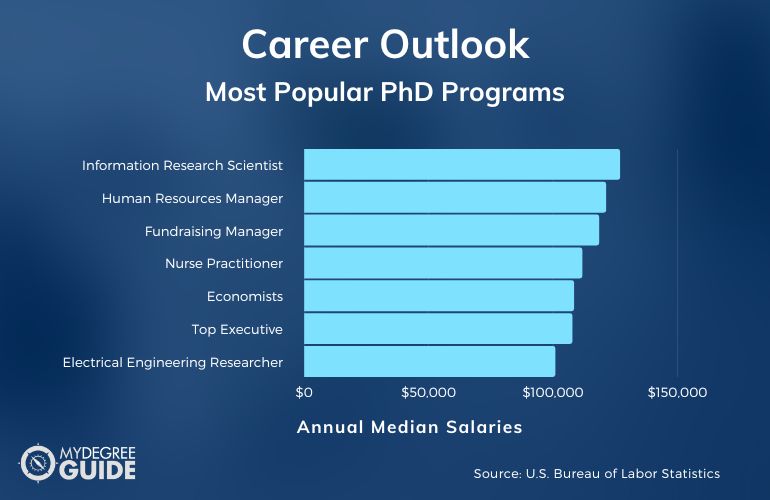
Doctorates are available in practically any field, but some are more common than others. The following table shows some of the top PhDs that you may be able to earn online.
According to the Bureau of Labor Statistics, some related careers and their average salaries include:
Getting your doctorate may certainly increase your earning potential. According to the Bureau of Labor Statistics, the median annual salary for PhDs is $110,200. That’s a large jump from $78,210, the average annual earnings for those with a master’s degree.
How Do Part Time PhD Degree Programs Work?

To graduate from a part-time doctoral program, you’ll need to do the same work that you would for a full-time course of study. You’ll simply spread the work out over a longer stretch of time.
The first portion of your program will likely be devoted to classes. If you’re enrolled on a part-time basis, you’ll probably keep your course load light instead of taking multiple classes at once.
You may be able to take the classes online, but your school may require a few in-person residencies as well.
Some classes will focus on the research methods that are essential for all doctoral candidates to know, such as analyzing data and writing scholarly reports. At this point, you may also start thinking about a topic for your upcoming research project.

Other courses will be related to your field of study. While some classes may be required of every student in your PhD department, others may be electives. That way, you may build a course of study that is tailored to your career goals and research interests.
After completing your classes, your school may require oral or written testing as a way of assessing your knowledge.
Next, you’ll turn your attention toward your dissertation or another final project. This usually requires completing original research and reporting your findings in a detailed paper.
Even for full-time students, it may take several years to complete a dissertation. On a part-time basis, you may be working on this project even longer.
Once you finish your dissertation, the school’s faculty will need to approve it. Then, you’ll answer questions during a defense of your research. If the faculty determines that you have successfully defended your dissertation, you’ll then be awarded your PhD.
How Long Does It Take to Do a PhD Part Time?

How long it takes to complete your PhD through a part-time schedule is largely up to you and how much you can commit to your studies at any point in time.
You may find that there are some seasons in which you’re able to invest a good portion of your time and other seasons when you’re only able to do the bare minimum to keep going.
As a general rule, though, you should expect your part-time studies to last for several years. Being a part-time student won’t exempt you from any of the program’s requirements.
You’ll still need to earn just as many credit hours, complete any residency or internship experiences, and do the same final projects. The work will just be spread out over a longer period of time.

You should probably plan to work on your doctoral program for six to eight years. Some students take even longer. There may be a maximum duration allowed by your program, so be sure to discuss that with your faculty advisor.
Although part-time schooling is convenient, being enrolled in the same program for years on end may start to feel tedious. It’s important to choose an area of study that you really care about.
Your passion for your studies can keep you motivated even when graduation still seems a long way off.
Admission Requirements for a PhD

No matter what type of doctoral program it is, whether it is a part time or an online accelerated doctoral program , they can be competitive and you’ll want to make sure that your application stands out to the admissions committee. The first step is making sure that you meet the requirements and include all necessary documentation.
- Application and fee: Filling out this form gives the committee basic information about you, so be sure to complete it thoroughly. The fee will be non-refundable, even if you aren’t admitted.
- College transcripts: These demonstrate whether you have the appropriate academic background. You will need to hold a bachelor’s degree, and you may need a master’s degree as well. There may be minimum GPA scores required.
- Test scores: Many schools use GRE or GMAT scores to determine whether you have what it takes to succeed in a PhD program. If you’re an international applicant, you may also need TOEFL scores to demonstrate your proficiency with the English language.
- Letters of reference: These should come from academic or professional colleagues who can attest to your commitment and character. Two or three letters may be required.
- Personal statement or research proposal: This is your chance to communicate your study goals. That way, the school can determine whether your interests align with the expertise of the faculty.
Pay close attention to application deadlines. It’s smart to submit your materials a few weeks before the cutoff since schools don’t usually take late applications.
Accreditation for PhD Programs

Accreditation is a process in which an independent organization evaluates a college’s programs and results to determine whether the school is doing a good job of educating students. If the college is up to par, then it receives approval from an accrediting body.
The primary type of accreditation to consider is regional accreditation . There are seven U.S. organizations that have the right to grant regional accreditation.
There are fairly high standards for regional accreditation. As a result, this type of accreditation is well-respected, and employers are often more inclined to select candidates whose degrees come from regionally accredited schools.
Financial Aid for PhD Students

Paying for a doctorate out of pocket can be an overwhelming prospect, but there are a number of options for funding your PhD.
- Fellowships: Based on your personal merits, your school or a private organization may give you fellowship money intended to further your research goals.
- Government grants: If your income qualifies, you may get free tuition help from the state or federal government.
- Government loans: You may have the option to take out low-interest loans from the federal government or your state.
- Private loans: To supplement your financial package, you may also need private loans. Just be aware that these can come with high interest rates.
- Scholarships: You can apply for gift money from a scholarship-granting organization, such as a professional association in your field.
- Stipends: Some schools grant PhD candidates a small stipend. There are usually stipulations to this, and the rules may differ for part-time students.
To find out more, talk to your school’s financial aid department. Be sure to fill out the Free Application for Federal Student Aid (FAFSA) .
Also, if getting a doctorate could benefit your performance at work, you may be able to request tuition assistance from your employer.
Can You Do PhD Part Time?

Yes, you can do a PhD part time. Studying for a PhD doesn’t have to be all-or-nothing. Just as there are part time masters programs , you can likewise enroll in a doctoral program on a part-time basis.
With that approach, you may be able to go to work during the day and take classes or write papers in the evening. It may even be possible to complete the coursework online.
Is PhD Full Time or Part Time?
Both full-time and part-time PhD programs are available. Some people choose to earn their doctorates as quickly as possible by going to school full-time. Others opt to enroll part-time so that they may keep up with work or family responsibilities.
Keep in mind that not all schools give you the choice between full-time and part-time study; their traditional or online doctoral programs may be specifically designed for one or the other.
Is a PhD Worth It?

Yes, a PhD is worth it for many students. The U.S. Bureau of Labor Statistics projected a 5.9% job growth for doctoral or professional degree holders over the next 1o years, faster than the average for all occupations.
Getting a PhD may open new doors. Earning this top degree may grant you entrance into academia as a researcher or a professor.
It may also prepare you to assume high leadership roles and earn more money in your field. Plus, there’s often a sense of personal satisfaction that comes from accomplishing a huge goal like earning a PhD.
If you’re ready to put those three letters after your name, then it’s time to think about enrolling in a doctoral program. Apply to part-time PhD programs so you may pursue your degree without putting your life on hold.


Pursuing A Part-Time Phd In Computer Science: What You Need To Know
Earning a PhD is the pinnacle of academic achievement in computer science, opening doors to research, teaching, and leadership roles. But taking 4+ years off work for a full-time program isn’t feasible for everyone.
Part-time PhD options allow professionals to attain this goal while continuing their careers.
If you’re short on time, here’s the key takeaway: Part-time CS PhD programs typically take 5-7 years to complete . They provide flexibility for working students but require diligence to balance school, research, and professional demands.
The Benefits of a Part-Time CS PhD
Progress academically without leaving your job.
A part-time PhD in Computer Science offers the unique opportunity to advance your academic career while still maintaining your professional commitments. This flexibility allows you to continue working in your current job, providing financial stability and practical application of your studies.
Balancing work and study can be challenging, but the rewards are worth it. By pursuing a part-time PhD, you can deepen your knowledge in your chosen field and make significant contributions to the advancement of computer science.
Network with faculty and peers in your field
One of the key advantages of pursuing a part-time PhD in Computer Science is the opportunity to network with esteemed faculty members and like-minded peers who share your passion for the subject. Interacting with experts in the field can provide valuable insights, guidance, and collaboration opportunities.
Attending conferences, workshops, and seminars can further expand your network and expose you to the latest developments in computer science. Building these connections can open doors to new opportunities and enhance your career prospects.
Strengthen research skills and resume
A part-time PhD program allows you to develop and refine your research skills, which are highly valued in the field of computer science. Through conducting in-depth research, analyzing data, and writing scholarly papers, you can enhance your ability to critically think, problem solve, and contribute to the body of knowledge in your area of expertise.
Moreover, having a PhD in Computer Science on your resume demonstrates your dedication, perseverance, and expertise, making you a highly sought-after candidate for both academic and industry positions.
Program Structure and Requirements
Reduced course load each semester.
Pursuing a part-time PhD in Computer Science offers flexibility in terms of course load. Unlike full-time students, part-time students typically take a reduced number of courses each semester. This allows them to balance their academic commitments with other personal and professional responsibilities.
By taking fewer courses at a time, part-time students can focus on their coursework more effectively and ensure a better understanding of the material.
Original dissertation research
The cornerstone of a part-time PhD program in Computer Science is the dissertation research. Students are required to embark on an original research project under the guidance of a faculty advisor. This research should contribute to the existing body of knowledge in the field and demonstrate a deep understanding of a specific area of computer science.
The research can involve developing new algorithms, designing innovative software systems, or exploring cutting-edge technologies.
Qualifying exams and proposal defense
Part-time PhD students in Computer Science are typically required to pass qualifying exams to demonstrate their readiness for conducting research. These exams assess the student’s knowledge and understanding of the core concepts in the field.
Once the exams are passed, students need to prepare a research proposal outlining the objectives, methodology, and expected contributions of their dissertation. The proposal is then defended in front of a committee of faculty members who evaluate its feasibility and significance.
It’s important to note that the specific structure and requirements of a part-time PhD program in Computer Science may vary depending on the institution. It is advisable to consult the program’s official website or contact the program coordinator for more detailed information.
Finding the Right Program
When pursuing a part-time PhD in Computer Science, finding the right program is crucial for success. Here are some key factors to consider:
On-campus and online options
One of the first decisions to make is whether to pursue your PhD on-campus or online. On-campus programs offer the benefit of face-to-face interactions with professors and fellow students, while online programs provide flexibility for those who are working or have other commitments.
It’s important to weigh the pros and cons of each option and choose the one that aligns best with your lifestyle and goals.
Focus on faculty research expertise
Another important factor to consider when choosing a program is the faculty’s research expertise. Look for programs where the faculty members have research interests and expertise that align with your own.
This will ensure that you receive guidance and mentorship from experts in your field of interest. Additionally, professors with strong research backgrounds can provide valuable networking opportunities and connections in the industry.
Funding availability
Funding is a significant consideration for many part-time PhD students. Look for programs that offer funding options such as scholarships, grants, or assistantships. These can help alleviate the financial burden and allow you to focus on your studies.
It’s also worth exploring external funding opportunities from organizations or government agencies that support research in your field.
Managing Your Time Effectively
Stay organized with schedules and goals.
When pursuing a part-time PhD in computer science, time management becomes crucial. It is important to create a schedule that includes dedicated study hours, research time, and coursework completion. By setting goals for each week or month, you can track your progress and ensure that you are staying on track.
One effective strategy is to use a planner or a digital calendar to keep track of deadlines, meetings, and other important events. By having a visual representation of your commitments, you can prioritize your tasks and allocate time accordingly.
Additionally, breaking down larger tasks into smaller, manageable chunks can help you stay organized and prevent overwhelm. By setting realistic goals for each study session, you can make progress towards your PhD while still managing other responsibilities.
Communicate needs clearly at work
When pursuing a part-time PhD, it is essential to communicate your needs with your employer or colleagues. Letting them know about your academic commitments and the time required for your studies can help them understand your availability and make necessary adjustments.
Consider having a conversation with your supervisor or manager to discuss your situation and explore potential flexible working arrangements. This could include adjusting your work schedule, reducing your workload, or even exploring opportunities for research collaboration between your job and your PhD.
Open and honest communication can go a long way in ensuring that both your work and academic responsibilities are managed effectively.
Leverage support systems
Pursuing a part-time PhD can be challenging, but you don’t have to do it alone. It is crucial to leverage the support systems available to you.
Reach out to your academic advisor or supervisor for guidance and support. They can provide valuable insights on managing your time, selecting courses, and balancing your academic and work commitments.
Additionally, consider joining or forming study groups with fellow part-time PhD students. Collaborating with others who are facing similar challenges can provide a sense of camaraderie and support. You can share study materials, discuss research ideas, and offer each other encouragement along the way.
Lastly, don’t forget about the support of your family and friends. Let them know about your academic journey and the challenges you may face. Their understanding and encouragement can help you stay motivated and focused on your goals.
Remember, pursuing a part-time PhD in computer science requires dedication, discipline, and effective time management. By staying organized, communicating your needs, and leveraging support systems, you can successfully navigate this exciting academic journey while maintaining a balance with your work and personal life.
Completion, Careers and Next Steps
Job prospects post-phd.
Completing a part-time PhD in computer science opens up a world of exciting job prospects. With a doctoral degree in this field, you are well-equipped to pursue highly specialized positions in both industry and academia.
The demand for computer science professionals continues to grow, and obtaining a PhD can give you a competitive edge in the job market. According to the Bureau of Labor Statistics, the employment of computer and information research scientists is projected to grow 15 percent from 2019 to 2029, much faster than the average for all occupations.
This means that there will be ample opportunities for individuals with advanced degrees in computer science.
Potential teaching and research roles
One of the key benefits of earning a PhD in computer science is the opportunity to pursue teaching and research roles. Many universities and research institutions are constantly seeking experts in the field to join their faculty and contribute to cutting-edge research.
As a PhD holder, you can become a professor, teaching and mentoring the next generation of computer scientists. Additionally, you can engage in research projects, pushing the boundaries of knowledge in the field and making significant contributions to the advancement of technology.
The opportunity to share your expertise and make a lasting impact in the academic community is truly rewarding.
Higher salaries and senior positions
Earning a PhD in computer science can also lead to higher salaries and senior positions. With the advanced knowledge and skills gained during your doctoral studies, you become a valuable asset to companies and organizations.
Employers often recognize the expertise and dedication required to complete a PhD, and are willing to offer higher salaries to attract and retain top talent. In addition, holding a doctoral degree can open doors to senior management and leadership positions, where you can have a greater influence on strategic decisions and shape the direction of the company.
According to a survey conducted by the National Association of Colleges and Employers, computer science PhD graduates earned an average starting salary of $123,000 in 2020, significantly higher than those with a bachelor’s or master’s degree.
While requiring diligence and time management skills, part-time computer science PhD programs make this high-level credential attainable for busy professionals. From strengthening your research abilities to opening new career doors, the long-term benefits of earning a PhD on a flexible schedule are immense.
If you’re willing to balance work, research, and coursework, a part-time CS PhD can help you achieve your pinnacle academic and career aspirations.
Similar Posts

Uc Berkeley Computer Science Transfer Acceptance Rate
The University of California, Berkeley is one of the top computer science programs in the world. But as a transfer applicant, how hard is it to get accepted? In this comprehensive guide, we analyze UC Berkeley’s transfer acceptance rate for computer science majors and what it takes to gain admission. If you’re short on time,…

Examining Mystery, Science Fiction, Romance, And Horror: A Look At Popular Fiction Genres
From thrilling whodunits to futuristic technology to passionate romances, fiction comes in a wide array of genres. Mystery, science fiction, romance, and horror stand out as four major categories that remain perennially popular with readers. If you’re short on time, here’s a quick answer to your question: Mystery, science fiction, romance, and horror represent distinct…

Computer Science Degree Vs Coding Bootcamp: The Complete Guide
With technology skills in high demand, more people are exploring fast ways to break into the field. A coding bootcamp promises career-ready skills in just weeks or months, while a computer science degree provides comprehensive foundations over 2-4 years. So which is better for landing a developer job? If you’re short on time, here’s a…

Is Calculus Used In Computer Science? Examining Its Applications
Calculus is the mathematics of change and motion. But does an analytical field like computer science rely on calculus concepts? If you’re short on time, here’s a quick answer: While not all computer science careers require calculus, it is used extensively in areas like machine learning, computer graphics, and data analysis. In this comprehensive guide,…
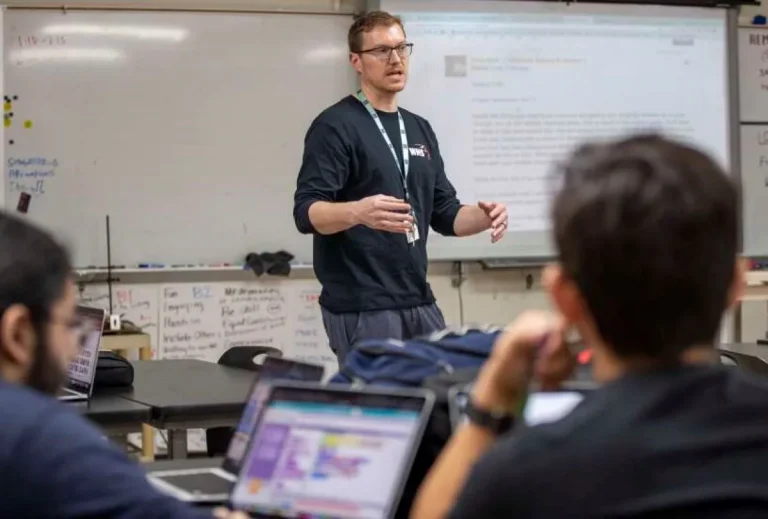
Examining Iowa State’S National Rankings In Computer Science
As one of the top computing colleges in the Midwest, Iowa State University has a reputation for excellence in computer science education. But how does ISU’s program compare on a national scale? If you’re short on time, here’s a quick answer to Iowa State’s rankings: Iowa State’s computer science program is consistently ranked among the…
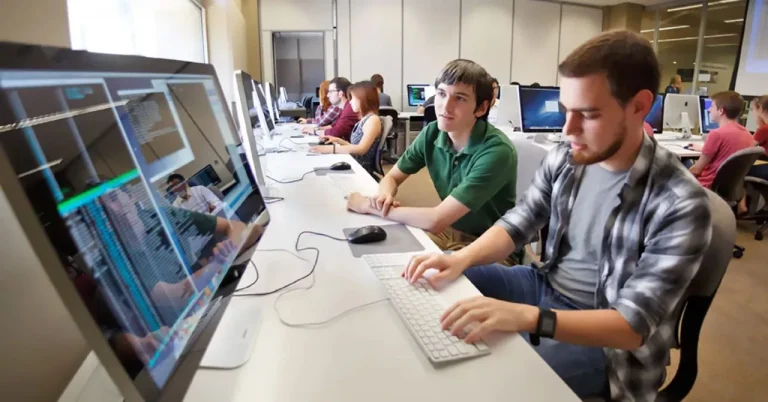
Is Computer Science A Science?
As computer technology continues to transform society and industry, the discipline of computer science has rapidly grown in prominence and importance. But there is still ongoing discussion around how this relatively new field should be categorized academically. So is computer science considered an actual science? If you’re short on time, here’s the quick answer: While…

PhD completion: an evidence-based guide for students, supervisors and universities
Senior Lecturer in Management, Fellow of the APS College of Organisational Psychologists, Swinburne University of Technology
Disclosure statement
Timothy Colin Bednall does not work for, consult, own shares in or receive funding from any company or organisation that would benefit from this article, and has disclosed no relevant affiliations beyond their academic appointment.
Swinburne University of Technology provides funding as a member of The Conversation AU.
View all partners
Many students enrol in a Master or PhD postgraduate research degree, but few complete them. From 2010-2016 , 437,030 domestic and international students enrolled in postgraduate research programs in Australian public universities. Only 65,101 completed within the same six year period.
This discrepancy does not necessarily mean postgraduate research students “failed” their degree. Common reasons not completing a degree include changes of career goals, work-family conflicts, poor health or financial strain. Alternatively, some students remain enrolled in their degree for long periods without making significant progress.
Even so, the discrepancy is large enough for universities to be concerned. Nobody wants a student to suffer through years of hard work and frustration without achieving their goal.
What does research say about completion rates?
Research has identified several factors that make students more likely to persist with their degrees. These factors are related to the students themselves, their supervisor, and the university environment.

Psychological studies of postgraduate students find the more successful ones tend to perceive themselves as competent and be intrinsically motivated . These are students who enjoy their topic area, perceive their postgraduate studies as a valuable learning experience, and who strongly identify with being a career researcher. Students who are motivated by external factors (such as pursuing a prestigious academic role) are more likely to say they want to quit.
Scholarship holders are more likely to complete their degrees. This is likely because they are academically stronger than non-scholarship holders and are less vulnerable to financial strain. Students can support themselves financially through teaching, research assistant roles or other work, but this must be balanced carefully. Part-time students are less likely to complete their degrees.
Students’ field of study also affects completion rates. A higher proportion of students in sciences tend to complete their degrees than those in arts and humanities. This is likely because students working in the sciences are more often involved in laboratory-based work in teams, where there is greater social support and knowledge exchange. People studying humanities more often work on their research alone.
A positive student-supervisor working relationship is critical. A good supervisor should be an expert in the student’s subject of choice and a supportive mentor. They should help the student navigate through the frustrations and uncertainties of writing a thesis, and help students adjust to the world of academia.
Students are also more likely to finish their research degrees if they have strong connections with their peers . Such connections help students develop their professional identity as researchers, as well as providing opportunities for social support and informal learning .

The quality of associated coursework is also important. Ideally, postgraduate programs should provide students with a sound foundation of research skills and content knowledge, and facilitate ongoing communication with their faculty.
Involvement in formal and informal professional activities is also important. Students who complete tend to participate in departmental events, such as research seminars and professional development workshops. They also tend to participate in academic conferences. These events allow students to learn and expand their networks.
What students and their supervisors should do
First, given the importance of the student-supervisor relationship, universities can provide advice to students about locating and approaching a suitable supervisor. Specifically, students should consider the research area they wish to work in and locate a supervisor with relevant expertise. They should approach supervisors with an openness to negotiating a research topic.
Read more: Ten types of PhD supervisor relationships – which is yours?
Both students and supervisors should be upfront about their expectations about how the supervision will work. An excellent starting point for discussion is the Expectations in Supervision questionnaire. Students and supervisors sometimes have mismatched expectations about how often they should meet, the amount of feedback the supervisor should provide on drafts, and how much counselling and emotional support the supervisor should provide.
Supervisors have an important role in providing a realistic preview of academic life. One useful exercise is to review an academic competency model, such as the Vitae Researcher Development Framework , to discuss which skills academics need. In addition to knowledge of their topic area and research methods, academics increasingly need to be good at managing complex projects, working in multidisciplinary teams, and engaging with industry and media.
This discussion should enable supervisors and students to plan how students will develop their capabilities. Alternatively, it could prompt some students to opt out of a research degree if they think an academic role is not compatible with their goals.
What universities should do
As well as providing research training, universities can also increase the capabilities of students by helping them understand self-handicapping patterns. These include busyness, procrastination and disorganisation.
Students can be guided to replace these with more helpful actions such as scheduling dedicated writing time, reframing difficult tasks as learning opportunities, and developing a work routine. This could be done as part of a workshop or supervisory relationship.
Universities should also encourage greater connectedness between research students to build social support. This could be accomplished through team-based activities or face-to-face events.
For instance, some universities offer Three Minute Thesis , a research communication competition where students present their work in under 180 seconds.
Some universities organise Shut Up and Write sessions, which turns writing into a social experience and limits distractions. These activities can be complemented by encouraging students to become involved in supportive online communities and blogging .
Read more: The rise of writing events gives PhD students the support often lacking in universities
Finally, universities should be dedicated to helping academics develop as supervisors through ongoing training and coaching. Departments could consider tracking the progression of students and ensuring supervisors have the time and skills to take on new students.
Completing a dissertation can be richly rewarding, but it’s the endpoint of a process that’s often long, frustrating and uncertain. Helping students achieve their research aspirations makes academic life a better experience for all involved.
- Postgraduate degrees
- PhD supervisors
- PhD students

Case Management Specialist

Lecturer / Senior Lecturer - Marketing

Assistant Editor - 1 year cadetship

Executive Dean, Faculty of Health


Lecturer/Senior Lecturer, Earth System Science (School of Science)

Research Voyage
Research Tips and Infromation
07 Simple and Proven Steps to Complete PhD in 03 Years
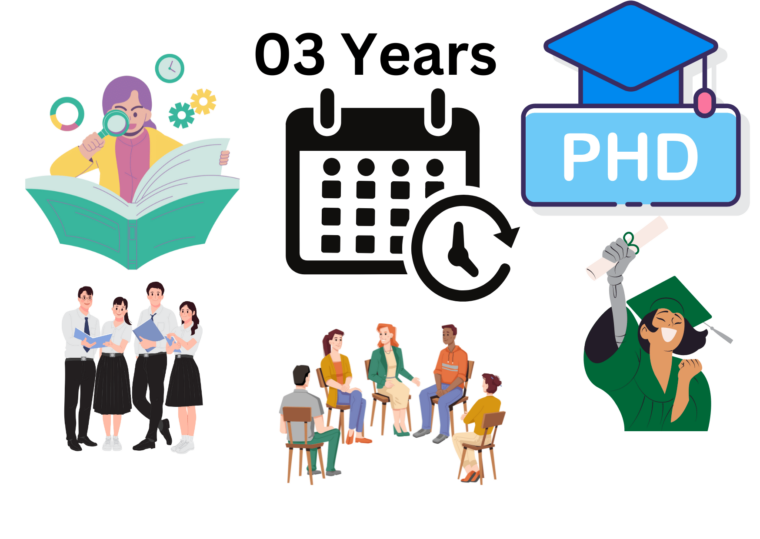
Embarking on a PhD journey is a significant endeavor that requires commitment, perseverance, and efficient time management. While the typical duration of a PhD program is often longer, completing it within a three-year timeframe is an ambitious goal that can bring numerous benefits. For part-time researchers who juggle personal and family commitments alongside their academic pursuits, it becomes even more crucial to optimize their research work and make strategic choices to ensure timely completion.
In this guide, we will explore effective strategies and approaches to help you complete your PhD in just three years. Join us on this journey as we explore the steps and considerations necessary to make your PhD completion in three years a reality. Let’s unlock the potential for accelerated academic achievement and pave the way for a successful research career.
Introduction
Challenges faced by part-time phd researchers, overview of strategies to complete a phd efficiently, 1. selecting a well-defined and aligned phd research topic:, 2. choosing an area of interest and expertise:, 3. attract diverse and capable students:, 4. harnessing the advantages of research-oriented students:, 5. delegating phd tasks to students:, 6. assigning tasks that do not compromise the exclusivity of core research work:, a. seminar topics, b. papers in tech fests, conferences and journals, c. mini and major projects, d. data collection, e. user interface development, f. automation, g. equipment setup, h. testing and simulation.
- Before You Close........
Completing a PhD within a three-year timeframe holds several significant advantages. Firstly, it allows researchers to expedite their career progression and enter the job market earlier, gaining a competitive edge over their peers. Employers often value candidates who can demonstrate the ability to efficiently complete projects within tight timelines.
Additionally, completing a PhD in a shorter timeframe reduces the overall financial burden associated with pursuing a doctorate. It minimizes tuition fees, living expenses, and the opportunity cost of being away from the workforce for an extended period. You can visit my article on ” How to get loan / scholarship for your PhD “. This article will help you to secure loan easily for your PhD studies.
Moreover, timely completion of a PhD provides a sense of accomplishment, boosting confidence and motivation. It allows researchers to transition to the next phase of their careers, whether it’s pursuing academic positions, industry roles, or entrepreneurial ventures.
Part-time researchers face unique challenges that can hinder their progress in completing a PhD within a limited timeframe. Balancing personal and family commitments with the demands of rigorous research work poses a significant challenge. Juggling work responsibilities, family obligations, and self-care while dedicating sufficient time to research can be overwhelming.
Limited availability of time is another hurdle for part-time researchers. They often have to allocate evenings, weekends, and holidays for research, which can restrict the amount of time they can devote to their studies. This constraint necessitates efficient time management strategies to make the most of the available research hours.
Additionally, part-time researchers may face difficulties in accessing resources and establishing research networks compared to full-time students. Limited access to laboratories, libraries, and academic support services can create additional obstacles that need to be addressed.
To complete a PhD efficiently within a three-year timeframe, several strategies can be employed. These strategies revolve around optimizing time, maximizing productivity, and leveraging available resources effectively. Some key strategies include:
Choosing an Efficient Research Topic: Select a research topic that aligns with your interests and expertise to leverage existing knowledge, streamline your research efforts, and minimize time spent on background understanding.
Motivating Students to Engage in Research: Highlight the benefits of research for students’ career development and dispel misconceptions to foster a research-oriented mindset. By providing mentorship and guidance, students become actively involved in research, indirectly saving your time and contributing to the overall progress.
Optimizing Research Workload: Delegate tasks to undergraduate and postgraduate students to offload some workload, while also providing valuable learning opportunities for the students. This allows you to focus on core research activities and maintain productivity.
Assigning Suitable Research Tasks to Students: Assign seminar topics, papers in tech fests and conferences, mini and major projects, data collection, user interface development, automation, equipment setup, testing, and simulation tasks to students. This optimizes their potential and distributes the workload efficiently, allowing you to focus on core research activities.
By implementing these strategies and adopting an organized and focused approach, part-time researchers can overcome challenges, optimize their research efforts, and complete their PhD within a three-year timeframe.
Steps to Complete PhD in 03 Years
Choosing a well-defined research topic is crucial for optimizing research time and involving students effectively. A clear and focused research topic allows you to streamline your efforts and resources towards specific objectives. It helps in avoiding unnecessary diversions and ensures that your research remains on track.
For example, let’s say you’re conducting research in the field of artificial intelligence. Instead of a broad topic like “Applications of AI,” a well-defined topic could be “Improving Facial Recognition Accuracy using Deep Learning Techniques.” This focused topic allows you to concentrate your efforts on a specific problem, methodology, and dataset, reducing research time by avoiding distractions.
When involving students in your research, a well-defined research topic provides them with clear guidelines and objectives. They can contribute more effectively by understanding the scope and expectations of the research. Students can align their efforts with the research topic, conducting targeted literature reviews, performing focused experiments, and analyzing specific aspects of the research problem. This focused approach optimizes research time by avoiding unnecessary tangents and enhancing student engagement and productivity.
Choosing a research topic that aligns with your area of interest and expertise is essential for optimizing research time and involving students effectively. When you are passionate about the topic, you are more likely to be motivated and driven, leading to increased productivity and faster progress.
For example, if your expertise lies in renewable energy systems, selecting a research topic related to optimizing solar panel efficiency would be a natural choice. Your existing knowledge, skills, and experience in the field will allow you to make quicker progress, as you can build upon your existing expertise and leverage prior research.
When involving students, selecting a research topic that aligns with their interests and expertise can significantly enhance their engagement and contribution. When students are passionate about the research topic, they are more likely to invest time and effort into exploring and understanding the subject matter. They can leverage their existing knowledge and skills, bringing fresh perspectives and ideas to the research process.
Additionally, involving students in a topic aligned with their interests and expertise allows them to develop their research capabilities more effectively. Their prior knowledge and experience in related areas enable them to grasp concepts faster, conduct literature reviews more efficiently, and contribute to the research with their unique insights. This optimized involvement of students contributes to accelerated progress and overall research efficiency.
By selecting a well-defined research topic and choosing an area of interest and expertise, you optimize research time by avoiding unnecessary diversions and leveraging existing knowledge. Additionally, involving students in topics aligned with their interests enhances their motivation and productivity, leading to efficient collaboration and faster progress in your research endeavors.
To cultivate a research-oriented environment, it is essential to dispel misconceptions surrounding research being limited to high-achieving students. By doing so, you can attract a diverse range of capable students, each with unique talents and perspectives.
By promoting the accessibility and inclusivity of research, you encourage students from various academic backgrounds and achievement levels to participate. This diversity enriches the research process by fostering interdisciplinary collaboration and encouraging fresh approaches to problem-solving.
For instance, by dispelling the notion that research is exclusively reserved for top-performing students, you open doors for individuals who may not have pursued research due to self-doubt or lack of confidence. By embracing students from different backgrounds and abilities, you create an inclusive research environment that values their unique contributions. This inclusivity ultimately leads to a broader pool of ideas, increased innovation, and enhanced problem-solving capabilities within your research team.
By motivating students and fostering a research-oriented mindset, you indirectly save time and accelerate learning and implementation processes. The fast-thinking nature of the young generation, coupled with their motivation to contribute, enables them to absorb knowledge quickly and implement ideas effectively. Embracing a diverse range of students ensures a dynamic and innovative research environment that propels your research forward at an accelerated pace.
Motivating students and instilling a research-oriented mindset among them can yield significant benefits, not just for their own career development but also for your research progress. By highlighting the benefits of research, you can inspire and attract students who possess a natural inclination towards exploration and knowledge creation.
When students are motivated to engage in research, they bring fresh perspectives, innovative ideas, and a youthful enthusiasm to the table. The young generation’s thinking is often agile and fast-paced, allowing them to grasp concepts quickly and propose creative solutions. By harnessing their energy and passion, you can indirectly save time and accelerate the learning and implementation processes within your research endeavors.
For example, when working with research-oriented students, they can assist in literature reviews, data collection, and preliminary analysis. Their eagerness to contribute and learn enables them to swiftly navigate through relevant research articles, extract key findings, and compile comprehensive summaries. This collaboration frees up your time, allowing you to focus on the core aspects of your research while ensuring that important groundwork is efficiently completed.
One effective strategy for optimizing research workload is to delegate certain tasks to undergraduate and postgraduate students. By involving students in research activities, you can distribute the workload, increase productivity, and foster a collaborative research environment. However, it is essential to assign tasks that align with their capabilities and provide proper guidance and supervision.
For example, if you are conducting a survey as part of your research, you can assign the task of data collection to undergraduate students. They can assist in gathering responses, organizing data, and conducting initial data analysis. This delegation allows you to focus on other aspects of your research while leveraging the support of capable students.
Similarly, for laboratory-based research, you can assign tasks such as equipment setup, data collection, or preliminary experimentation to postgraduate students. They can assist in carrying out experiments, recording data, and performing initial analysis under your guidance. This not only helps you manage the workload but also provides valuable learning opportunities for the students.
When delegating tasks to students, it is important to ensure that the assigned tasks do not compromise the exclusivity of your core research work. You need to strike a balance between involving students in research activities and safeguarding the integrity and originality of your PhD work.
For instance, you can assign literature review tasks to students to gather relevant research articles and summarize key findings. This allows them to contribute to the research process while keeping the core ideas and analysis within your control.
Similarly, students can be involved in data preprocessing tasks, such as data cleaning or formatting, which do not directly impact the analysis or interpretation of your research. By assigning these tasks, you can save time and focus on more critical aspects of your work while enabling students to gain practical experience.
It is important to establish clear guidelines and expectations when assigning tasks to students. Communicate the purpose of their involvement and ensure they understand the boundaries and limitations regarding the core research work. Regular meetings and progress updates can help maintain a cohesive research direction while monitoring the students’ progress.
By delegating appropriate tasks to students, you can optimize your research workload, increase efficiency, and foster a collaborative research environment. Assigning tasks that do not compromise the exclusivity of your core research work ensures that you maintain control over the essential aspects of your PhD while benefiting from the support and contribution of capable students.
7. Assigning Suitable PhD Research Tasks to Students:
- Importance of staying informed about the latest advancements: Assigning seminar topics to students helps you stay informed about the latest advancements in your field. By delegating these topics, students conduct thorough research, gather relevant information, and present it to you and their peers. This enables you to gain valuable insights into emerging trends and technologies without dedicating significant time to individual research. It optimizes your research time by allowing you to focus on core research areas while benefiting from students’ findings.
- Enhancing students’ presentation skills: As students prepare and deliver seminars on assigned topics, their presentation skills improve. This proficiency can be leveraged in your research team when they assist in presenting your research findings or representing your work at conferences. By developing their presentation skills, you indirectly save time by sharing the responsibility of effectively communicating research outcomes.
- Assigning survey papers to summarize key findings and trends: Assigning survey papers to students helps summarize key findings and trends in specific subfields. Their literature review skills come into play as they collect and synthesize relevant research articles. By delegating this task, you gain a comprehensive overview of the current state of research within the subfield without investing substantial time in extensive literature reviews.
- Developing students’ surveying and synthesizing skills: By assigning survey papers, students enhance their surveying and synthesizing skills. This proficiency not only benefits your research but also adds value to their academic development. As students become adept at summarizing complex research, they contribute to streamlining the research process. Their refined skills enable them to extract essential information efficiently, allowing you to save time in reviewing extensive literature.
- Allowing the students to publish their preliminary work in Student Journals: Undergraduate research journals are scholarly publications specifically dedicated to showcasing the research work of students. These journals provide a platform for students to share their findings, theories, and ideas with a wider audience, including fellow students, researchers, and professionals in their respective fields. The researchers can allow the students to publish their preliminary works in these journals. I have written an article on Journals that publish preliminary research works Which Journals Publish Work by Undergraduate Students? . Please visit the article for further details.
- Assigning projects related to implementing algorithms or techniques: Assigning mini and major projects related to implementing algorithms or techniques allows students to gain hands-on experience. By delegating these tasks, students contribute to the practical aspects of your research. They explore emerging technologies, test algorithms, and analyze results. Their involvement accelerates the implementation phase, saving you time and effort while ensuring progress in experimental work.
- Enhancing programming skills and staying updated with technologies: As students work on mini and major projects, they enhance their programming skills and stay updated with relevant technologies. Their learning benefits your research by introducing new programming techniques, improving code efficiency, and incorporating the latest tools. By leveraging students’ programming expertise, you can optimize your research time and advance your work using their acquired skills and knowledge.
- Assigning students to collect and analyze data: Assigning students to collect and analyze data streamlines the research process by distributing tasks. Students can collect data from various sources, organize it, and perform preliminary analysis. Their involvement saves you time by sharing the workload of data collection, enabling you to focus on data interpretation and drawing meaningful conclusions. Moreover, their assistance accelerates the research timeline, ensuring timely data acquisition.
- Expanding knowledge in data preprocessing and analysis: As students engage in data collection and analysis, they expand their knowledge of data preprocessing and analysis techniques. This knowledge can be applied to your research, enhancing the quality and efficiency of data processing. By delegating data-related tasks, you benefit from their expertise and save time by sharing the responsibilities associated with data management.
- Involving students in developing effective UI/UX designs : Assigning students to develop user interfaces (UI) allows you to showcase your research professionally. Their involvement in UI development enhances the visual representation of your work, making it more accessible and engaging for audiences. Their contribution in creating intuitive designs and user-friendly interfaces saves you time by ensuring that your research is effectively communicated and understood.
- Enhancing students’ skills: As students develop UI/UX designs, they acquire valuable skills in UI development, graphic design, and user experience. Their enhanced skills not only benefit your research by improving the presentation of your work but also provide them with practical expertise in a highly sought-after field. By leveraging their skills, you optimize your research time and benefit from their professional-level designs.
- Assigning automation tasks to learn emerging technologies: Assigning automation tasks to students allows them to learn and explore emerging technologies. As they automate certain research processes, such as data generation or testing, they contribute to increasing research efficiency. Their involvement in automating repetitive tasks saves you time and effort, allowing you to focus on more critical aspects of your research.
- Improving efficiency and productivity in research: Automation tasks, when undertaken by students, improve overall research efficiency and productivity. By streamlining repetitive tasks, you can allocate more time to analysis, experimentation, and interpretation of results. Students’ contribution to automation not only saves time but also enhances research quality and ensures consistency in data processing.
- Involving students in setting up equipment: Assigning students to assist in equipment setup saves you time and effort associated with preparing the necessary tools and instruments. Their involvement ensures that equipment is ready for use when required, allowing you to focus on conducting experiments and gathering data. By delegating equipment setup tasks, you optimize your research time and streamline the workflow.
- Saving time and effort while developing technical skills: As students participate in equipment setup, they develop technical skills and gain practical experience. This expertise can be utilized within your research team, as they become proficient in handling equipment and troubleshooting technical issues. Their involvement saves you time by sharing responsibilities related to equipment setup, maintenance, and operation.
- Assigning testing and simulation tasks to collect and analyze data: Assigning testing and simulation tasks to students aids in data collection and analysis. As they conduct tests or simulate scenarios, they generate data that can be used in your research. Their involvement in data collection saves you time and resources, as they share the workload associated with conducting experiments and gathering results.
- Promoting collaboration, skill development, and reducing risks: Testing and simulation tasks encourage collaboration among students and researchers, fostering a supportive research environment. By involving students in these tasks, you promote teamwork, allowing them to learn from one another’s experiences and perspectives. Additionally, their involvement reduces risks associated with complex experiments, ensuring a safer research process.
By assigning suitable research tasks to students, you optimize your research time by delegating responsibilities and sharing the workload. Their involvement adds value to your research through their diverse skills, fresh perspectives, and ability to contribute to specific research areas. By effectively utilizing their expertise, you can accelerate progress, enhance the quality of your research, and benefit from their valuable contributions.
Before You Close……..
I have written a good number of articles on PhD journey. These articles include writing research papers, applying for grants , patents , writing PhD thesis , approaching consultants , PhD careers and several templates on research. Please make it a point to visit these articles Here .
Completing a PhD within a three-year timeframe requires careful planning, efficient strategies, and effective utilization of resources. By implementing the discussed approaches and leveraging the potential of undergraduate and postgraduate students, you can optimize your research time, enhance productivity, and achieve significant milestones in your academic journey.
Motivating students to engage in research not only benefits their career development but also indirectly saves your time. When students are properly motivated and research-oriented, they bring fresh perspectives, energy, and faster thinking to the research process. By providing them with proper guidance and direction, you can harness their enthusiasm and accelerate the pace of your research.
Upcoming Events
- Visit the Upcoming International Conferences at Exotic Travel Destinations with Travel Plan
- Visit for Research Internships Worldwide

Recent Posts
- EditPad Research Title Generator: Is It Helpful to Create a Title for Your Research?
- Are Postdoctoral Fellowships Taxable? A Guide to Understanding Tax Implications
- How to Get Off-Cycle Research/Academic Internships
- How to End Your Academic/Research Internship?
- PhD or Industry Job? A Comprehensive Career Guide
- All Blog Posts
- Research Career
- Research Conference
- Research Internship
- Research Journal
- Research Tools
- Uncategorized
- Research Conferences
- Research Journals
- Research Grants
- Internships
- Research Internships
- Email Templates
- Conferences
- Blog Partners
- Privacy Policy
Copyright © 2024 Research Voyage
Design by ThemesDNA.com


- Campus Safety
- (866) 825-5426
Pros & Cons: Full Time vs. Part Time PhD
Part-time vs. full-time phd: which one is right for you.
Returning to school can be a huge decision, especially if you’re a working adult. There are many factors to consider, including how you’ll find the time to do the required work. Because of this, many people may struggle to decide between a full-time and part-time PhD program.
The good news is that the only true difference between the two types of programs is the length of time it’ll take you to complete your work. The coursework and other components are typically the same.
This guide will help you weigh the pros and cons of committing to a full or part-time PhD program so that you can decide which option is best for your goals and lifestyle.
What’s the Difference Between a Part-Time and Full-Time PhD?
The only notable difference between a part-time and full-time PhD is the amount of time it takes you to complete your degree. You’ll still be responsible for completing the required research and coursework.
That being said, the experience of a part-time PhD program may feel significantly different from that of a full-time student because:
- Full-time PhD candidates have more time to spend on their research and coursework
- Part-time candidates may have other commitments competing with schoolwork
- Financial assistance opportunities may vary depending on your program choice
- Research for a full-time student might be more immersive
The best choice for you is going to be the option that allows you to balance your educational commitments with the rest of your life. To give you a better understanding of what these educational obligations might be, let’s take a deep dive into full and part-time PhD programs.
The Ins and Outs of Full-Time PhD Programs
A full-time PhD program is similar to a full-time job. It’s typically an immersive experience with two main goals:
- Grow a student’s knowledge about an important topic
- Provide training to improve skills through research and collaboration
The path to these outcomes can be quite lengthy. Although your specific road might look a little different based on the institution and field of study you choose, the typical PhD program includes: 1
- Coursework – You’ll likely begin your program by taking graduate courses in your field to expand your knowledge base. Courses in research methods and scholarly writing will also be part of your curriculum. These are important preparation for the writing you’ll be expected to do as you progress through your program.
- Research – The time you spend outside of the classroom will mainly be used to research for your dissertation. The skills you acquire through your coursework will help you unearth sources, conduct experiments, or perform other research tasks.
- Meetings – You’ll also have regularly scheduled meetings with your PhD supervisor. The frequency and length of these meetings will depend on your institution and program. Here, you’ll discuss your progress, review your research, and get advice about your work.
- Teaching or fieldwork – Some PhD candidates are required to teach a certain number of classes during their time with an institution. Others must complete an internship, fieldwork, or another project. Your requirements will depend on the program you’re enrolled in and the institution you attend.
- Writing the dissertation – The pinnacle of your PhD program is, of course, the dissertation. This can take years to complete and is often the factor that extends the length of time it takes someone to finish their studies. It’s the compilation of all of your hard work, research, analysis, and writing.
- Defending your dissertation – Once you make that final edit to your dissertation, you’re almost finished. However, there’s one crucial step remaining: your dissertation defense. This is an oral exam where you present and answer questions about your research to a committee. The committee then decides if you have passed or if corrections are needed.
After the defense and committee approval, you’ll submit the final copy of your manuscript and be awarded your coveted degree.
Required Coursework
Every PhD program is going to look a little different depending on your field of study and institution. A very general example of required coursework for a full-time student might look something like this:
- Year 1 – Two full semesters of coursework, including some specialized courses in your areas of study. More generalized research design and research methods courses may take up a significant portion of your classroom time.
- Year 2 – The second year will also contain two full semesters of classes. You’ll take more courses focused specifically on researching and developing a proposal. This will prepare you to begin working on your dissertation.
- Year 3 – Your course load will be smaller as your dissertation research and writing begins. If teaching, clinical work, or lab work is required in your program, you’ll work on these tasks while also working on your dissertation.
- Year 4 and beyond – You might have a few remaining courses to take, but your time after year three is primarily dedicated to your research and writing until your dissertation is complete.
Weekly Commitment
A full-time PhD program can be an intense endeavor. It requires approximately the same amount of time as a full-time job each week—about 35 to 40 hours. The way those hours are distributed depends on where you are in your program. For the first two years, the bulk of your time will likely be spent in the classroom.
After that, you’ll likely be researching, writing, and completing other required duties.
Completion Timeframe
According to the National Science Foundation’s “Survey of Earned Doctorates”, there were 55,283 completed doctorate degrees in the United States in 2020. 2 The median length of time from beginning to completion was 5.8 years. At a minimum, most PhD programs take about 4 years, but even full-time students can take longer.
The time it takes you to complete your PhD as a full-time student is heavily dependent on how quickly and effectively you complete your dissertation. Factors that can delay completion include:
- You struggle with your research
- Writing takes longer than expected
- Your dissertation requires significant edits
- Life circumstances interfere with your studies
It’s important to remember that taking longer to finish your degree doesn’t diminish the accomplishment. Don’t get discouraged if you need to make revisions or if your research isn’t finished as quickly as you’d hoped.
A Full-Time PhD Program Might be Right for You If…
Students who successfully enroll in full-time PhD programs do so with the understanding that it’s a significant time commitment. Full-time programs might be best suited for students who:
- Don’t hold a full-time job
- Have the financial support needed
- Can commit as many as 40 hours per week to their school work
- Have significant schedule flexibility to accommodate classes, research, and other obligations
You might also begin as a full-time student and later make the switch to part-time if your circumstances change.
The Ins and Outs of Part-Time PhD Programs
Part-time PhD programs can offer students a little more flexibility. In fact, no two part-time PhD students are likely to have a program that looks the same. However, there are a few common traits among part-time PhD programs, such as:
- More flexibility in coursework
- Less of a financial burden all at once since costs are spread out over a longer period
- Less disruptive of your other life commitments
- More time to research
In a part-time program, you’ll likely have more time to attend to your other obligations. The trade-off is that you’ll be a student for far longer than you would if you attend school full-time. The work you must do is the same as if you attend full-time, it’s just spread out over more years.
Some key differences in the time commitment include:
- Classroom time – You’ll take the same classes as a full-time student but instead of finishing most of the core work in the first year or two, it might take you three or four years.
- Weekly hours – If you’re a part-time student, you’ll likely spend half the hours working. This equates to about 15 to 20 hours per week that you’ll need to dedicate to school. Of course, this time might change depending on how your program and institution define part-time.
- Years to complete – The timeframe for part-time students to complete a PhD varies. The “Survey of Earned Doctorates” doesn’t differentiate between part and full-time students in its completion data. Anecdotally, a part-time PhD student might take anywhere from 5 to 10 years or more to complete their degree. 3
The biggest takeaway about part-time PhD programs is that they’re highly variable, especially when it comes to completion times.
A Part-Time PhD Program Might be Right for You If…
Many students can benefit from the flexibility offered by a part-time PhD program. You might be the perfect candidate if you:
- Have a family
- Need time for other obligations
- Prefer to work more slowly
Keep in mind that you might be able to start slowly and increase your workload as you go through your programs and life changes.
Find Your Perfect PhD Match
A PhD program can be a challenging and time-consuming commitment, whether you’re a full-time or part-time student. In fact, there isn’t a significant difference between the two, other than the time it takes to finish your degree. A part-time option can allow working adults or those with other life obligations to work toward a doctoral degree at a slower pace that’s more conducive to their needs.
If you’re considering a full or part-time PhD program, Alliant International University might be the right choice for you. Check out our offerings today to see if we’re a perfect match for your educational goals.
Sources:
- “The PhD Experience: A Review of the Factors Influencing Doctoral Students’ Completion, Achievement, and Well-Being.” International Journal of Doctoral Studies. 2018. http://ijds.org/Volume13/IJDSv13p361-388Sverdlik4134.pdf . Accessed January 27, 2022.
- “Survey of Earned Doctorates.” National Science Foundation. November 30, 2021. https://ncses.nsf.gov/pubs/nsf22300/data-tables . Accessed January 27, 2022.
- “How Long Does it Take to Get a PhD Degree?” U.S. News and World Report. August 12, 2019. https://www.usnews.com/education/best-graduate-schools/articles/2019-08… . Accessed January 27, 2022.

Alliant International University
Other categories, university announcements, featured news, nursing and health sciences, start on your path to succeed on purpose, request information.
- 1 Current Select Interests
- 2 Provide Information
You might also like
How to plan for educational expenses.
How to Plan for Educational Expenses For many people, one of the biggest hurdles to higher education is the cost. Both...
How to Make Money in Grad School
How to Make Money in Grad School: Our Expert Advice The grad school experience is known for a lot of things: rich learning...
FAFSA Requirements & Qualifications
What are the Requirements for FAFSA? Most students will likely require some type of financial assistance to pay for school. The...
- International edition
- Australia edition
- Europe edition

How to juggle a full-time job and a part-time PhD
My PhD and my business career are not connected and they are both demanding. But I’ve found there are benefits to my double life
I took a while to tell my colleagues that I was studying for a PhD in my spare time. I was concerned that they might question my ability to balance a full-time (and full-on) career with doctoral studies in a topic completely unrelated to the industry I work in.
But I began to realise that, although the topic I am exploring is not directly connected, the skills I am acquiring are hugely valuable. The process has given me new perspectives and added value in ways I had not expected.
My approach to innovation has evolved, for example, as I apply academic questioning and analysis to business problems. I have completely refined my prioritisation skills. And mentoring graduates and helping them to realise their potential has inspired me to solidify my own thinking about progression.
Studying part-time for a doctorate can be a lonely experience; I have met only a small number of people in the same position. What’s more, there isn’t a huge amount of advice on the topic, so here are lessons I have learned about managing it so far:
Choose a topic that you love
Your choice of subject has to be so appealing that you can keep yourself motivated for the duration of your studies, in the face of the stresses and strains of work. This project may take six years (or more), so it needs a topic that you can’t leave alone. I’ve come to realise that much of a PhD is just getting through it, proving to yourself that you can persist and keep going.
Find the right supervisor and the right programme
Before you begin, it’s important to spend a significant amount of time finding the right supervisor – someone who can appreciate and support your approach. They will need to understand your priorities and your study pattern, which is likely to involve short bursts of activity. Look for someone experienced and who can understand your end goals. You are CEO of your project, so choose your supervisory team well, just as you would do in business.
Set the ground rules
Agree the minimum face-to-face and remote contact required with your supervisor. Document a clear plan of work and activities to reassure people around you – your supervisor and your colleagues – that you are in control.
Take real holidays
Much of the leave I take from work is focused on catching up on studying, but a break away from everything helps to clear the mind and restore the balance between work, study, home, family and friends.
Accept support
Help is there if you look for it and are open to receive it. Once I started being more open about what I was doing, the support I received from my colleagues hugely increased.
Only do what you need to
Accept that you cannot do everything. If your studies are not intended to further your career, you don’t have to give papers, or participate in teaching unless you want to. You need to be clear about the reasons for pursuing your studies. If it is not for a career in academia, then why put yourself under that extra pressure?
Value yourself
Work out how your studies will make you different – value the unique perspective they will enable you to bring to your organisation. Being able to articulate the extra benefits that you bring to your role may be useful if you need leniency around working hours or have to ask for study leave. There are more options than ever before to study remotely or part-time. Pursuing something that you are really interested in can be intensely fulfilling and help you to move towards a rounded and holistic approach to life.
Join the higher education network for more comment, analysis and job opportunities, direct to your inbox. Follow us on Twitter @gdnhighered . And if you have an idea for a story, please read our guidelines and email your pitch to us at [email protected]
- University careers
- Universities
- Higher education
Comments (…)
Most viewed.

- Youth Program
- Wharton Online
How the PhD Program Works
Program Overview
Completing your doctorate at Wharton requires 5 years of full-time study. The first 2 years in the program prepare you for admission to candidacy by taking courses, qualifying exams, and starting research projects. In the last few years, you are primarily conducting research full-time including writing and defending your doctoral dissertation.
Admission to candidacy.
You begin by taking courses required for your program of study. All programs requires a preliminary exam, which may be either oral or written.
Some programs may have further requirements, such as an additional exam or research paper. If you enter with a master’s degree or other transfer credit, you may satisfy the formal course requirements more quickly.
Beginning the Wharton PhD Curriculum How the first two years of the Wharton program helped students discover their interests, learn the tools of the profession, and fuel their passion for teaching.
The Doctoral Dissertation
Upon successful completion of coursework and passing a preliminary examination, you are admitted to candidacy for the dissertation phase of your studies.
Your doctoral dissertation should contain original research that meets standards for published scholarship in your field. You are expected to be an expert in the topic you choose to research.
You are admitted to candidacy for the dissertation phase of your studies upon successful completion of coursework and passing a preliminary examination, but you can start thinking about and working on research of relevance at any time.
The dissertation process culminates with a “defense,” in which you defend the proposal orally before your dissertation committee.
While working on your dissertation, you interact extensively with Wharton faculty. Together with interested faculty, you create your own research community that includes your dissertation advisor and dissertation committee.
Policies and Procedures
Get more detailed explanation of course requirements, academic standards, the Teacher Development Program, time limits, and dissertation procedures and requirements.
Sample Program Sequence
Years 1 & 2.
Coursework Examination Research Papers Research Activities Field-Specific Requirements
Directed Reading & Research Admission to Candidacy Formulation of Research Topic
Years 4 & 5
Continued Research Oral Examination Dissertation
Hear From Our Doctoral Community
From research consumer to research producer, phd student creates a new pipeline for women in academia, faculty expertise in housing economics attracted this phd student to wharton.
You're viewing this site as a domestic an international student
You're a domestic student if you are:
- a citizen of Australia or New Zealand,
- an Australian permanent resident, or
- a holder of an Australian permanent humanitarian visa.
You're an international student if you are:
- intending to study on a student visa,
- not a citizen of Australia or New Zealand,
- not an Australian permanent resident, or
- a temporary resident (visa status) of Australia.

Can I do a PhD while working?
Study tips Published 31 Mar, 2022 · 4-minute read
Completing a Doctor of Philosophy requires some serious dedication. But committing all your time to research can leave a significant gap in your income. So, can you work and do a PhD at the same time? Let’s find out.
We spoke with two UQ PhD candidates, Chelsea Janke and Sarah Kendall, to get some insights into whether you can get a PhD while working – and how to balance your work with your research.
Can you get a PhD while working?
The simple answer is yes, but we wouldn't exactly recommend it. There’s nothing technically stopping you from continuing to work (at least, to some extent) while you pursue a PhD, but doing a higher degree by research is a big commitment. So, you need to think carefully before you attempt to juggle both.
The more complex answer is that it depends heavily on the type of work you’re doing and how quickly you want to complete your research.

PhD candidates can continue working part time while completing their research. Of course, this depends on the nature of their research and other work.
Keep in mind : some PhD scholarships are only available to full-time candidates and may not allow you to earn more than a certain amount to remain eligible. If you’ve applied or plan to apply for a scholarship, make sure to check the relevant terms.
For international students , some extra restrictions apply. You can work up to 40 hours per fortnight, but this must not interfere with your full-time study load or your academic performance. Further limitations may apply if you're on an RTP scholarship (maximum 270 working hours per year) or being sponsored by your government.
Doing a PhD while working: full time, part time or casual?
Chelsea is quick to warn us that both working and researching full time is a recipe for disaster.
“A full-time PhD could not be done whilst working full time,” she says.
Doing both part time is feasible, but only if you’re happy to wait a few extra years to see the fruits of your labour.
“I know people who have worked part time and done their PhD part time – usually in the same research group or field,” says Chelsea.
“But keep in mind it took them 7-8 years to finish their PhD; it’s not the most efficient strategy.”
Committing to a full-time PhD while doing some incidental work on the side seems like the most popular approach for candidates, in Chelsea’s experience.
“Most full-time PhD students will pick up some casual work tutoring, marking, helping the lab manager, or assisting other researchers with their work,” she says.
“This means they can do a few hours here and there without their own PhD work being too disrupted.”
Sarah’s circumstances allow her to maintain a part-time job while completing her PhD, though she acknowledges you have to be lucky to be in a position to do so.
“PhD candidates can continue working part time while completing their research; of course, this depends on the nature of their research and other work,” says Sarah.
“Both my research and work are very flexible, and I can complete them whenever suits me.”
Learn about Sarah’s research or read her series about becoming an academic in law .
How to balance work with your PhD

If you plan to work whilst doing your PhD, you will need to manage your time well.
It’s one thing to ask can I do a PhD while working – actually managing to juggle the two is a whole other challenge. Sarah and Chelsea agree that time management is the most important part of making this work.
Sarah suggests keeping a strict schedule to divide your time evenly between your commitments, as this is what works for her.
“I find that I maintain a balance best by setting specific hours to work on my PhD (usually from 9am to 4pm Monday to Friday) and then on my other work commitments (usually Saturdays and sometimes a couple of hours before dinner),” she says.
“The hours you set to work on your PhD and other commitments will depend on whether your other work has set hours though, as well as when you work best – you might get some of your best research and writing done at 5am!”
Top tips for working while doing your PhD
- Only do so if you really want/need to and if you know you can manage the dual workloads.
- Tell your boss. Make sure your employer knows about your plans to juggle a PhD with your workload. See if there’s anything they can do to make the journey easier for you. For example, just like Sarah, your employer may be able to provide you the flexibility to complete your work on a schedule that accommodates your research hours.
- Consider a part-time PhD if cutting your hours or quitting your job isn’t a viable option. Yes, it might take longer. But if it means maintaining a comfortable balance between your research and your current career, it might be the best choice for you.
- Chat with your PhD supervisor. They’ve been there and done that, making them a great source of wisdom when it comes to pursuing a PhD while also balancing your other life commitments. You may also have peers currently doing a PhD who can provide some advice.
Haven’t chosen your supervisor yet? Read these tips for finding a suitable academic. It’s also a good idea to be upfront with your supervisor about your intention to work/research part time, as some supervisors prefer to work with full-time PhD candidates.
- Seek casual work at your university and in your field where possible. By keeping your work and research close together (both in terms of location and mindset), you may find it less challenging to keep on top of both.
- Make sure you’re passionate about your PhD topic . If your research just feels like a second job on top of your usual work, you’ll likely burn out before long. When developing your research proposal , make sure your thesis is providing that spark of curiosity that’s going to keep you inspired to follow through with your research – even on nights when you’re drained from work.
Ready to get started? Whether you’re dedicating yourself to a full-time PhD or keeping a balance between research and work, The University of Queensland is ready to support you.
Learn more about completing your PhD at UQ
Share this Facebook Twitter LinkedIn Email
Related stories

How to get a PhD scholarship or funding
3-minute read

How long does a PhD take?

How to find a PhD supervisor
5-minute read

Is a PhD worth it?
9-minute read

- How Long Does A PhD Take?
- Doing a PhD
Sometimes, just knowing how long a PhD takes can be enough to sway your decision on whether a research degree is for you. So with that in mind, exactly how long does a PhD take?
In the UK, a full-time PhD takes 3 to 4 years to finish whilst a part-time PhD takes twice as long at 6 to 7 years. Alongside these average durations, there are time limits on how long you can be enrolled on to a PhD programme. To discover these limits, the factors which most influence doctoral degree durations and how the UK durations compare to international PhDs, continue reading on.
How Long Does It Take to Get a Full-time PhD?
In the UK, a full-time PhD will typically take you 3 to 4 years. You will usually spend the first three years on the technical aspects of your doctorate. This includes undertaking independent research, designing your research methodology and collecting and analysing data. You will then spend an additional academic year on writing up your PhD thesis and sitting your viva.
How Long Does It Take to Get a Part-time PhD?
In the UK, a part-time PhD will typically take you 6 to 7 years; twice as long as doing a full-time PhD. The reason for this is that as a part-time PhD student, you would dedicate around 20 hours per week to your PhD as opposed to the typical 40 hours full-time students would put into their subject.
How Long Does a Distance Learning PhD Take?
Similarly, distance learning PhD’s take an average of 6 to 7 years to complete. This is because the vast majority of students who undertake a distance learning PhD do so because they can’t relocate closer to the university. Although these commitments will differ, they often mean the student isn’t able to dedicate 40 hours per week to their studies.
Students in STEM disciplines will often take longer to finish a distance learning doctorate degree than those in non-STEM disciplines. This because the progress of a STEM PhD student will be limited by how often they can access a laboratory for experiment work.
How Does Funding Impact a PhD’s Duration?
In reality, the actual time it will take you to complete your PhD degree will depend on your funding situation.
If you’re receiving funding , it will usually only cover you for 3.5 years if you’re studying full-time or for 7 years at half the stipend if you’re studying part-time. Although this could vary slightly, most PhD funding providers, e.g. Engineering and Physical Sciences Research Council (EPSRC), follow this timescale as indicated on their ‘ length of PhD studentships’ page. Because of this, most students who obtain scholarships try to complete their PhD within the timeframe of their funding so they don’t incur additional fees which they need to cover themselves.
It’s also worth noting that some funded PhD positions have additional conditions attached to them as part of their eligibility requirements. For example, they may require teaching undergraduate students, hosting laboratory sessions or attend presentations and conferences. This will be especially true if you’re on a Graduate Teaching Assistantship (GTA). Although these shouldn’t add considerable time to the length of a PhD programme, they have the potential to do so if they aren’t managed properly.
As self-funded students cover their own annual tuition fees and other associated costs, how long they’ll spend to complete their PhD project will largely depend on their own personal financial situation. Because of this, most self-funded PhD students find it best to complete their PhD study in the shortest time-frame they can manage.
Are There Deadlines?
Yes – unfortunately, all good things must come to an end! Within the UK, the deadline for your PhD is defined as the last date which you must submit your final thesis by. This date is set by your university’s overall regulations and varies depending on the arrangements of your PhD, e.g. whether it’s full or part time. In the vast majority of cases, the adopted deadlines are four years for full-time PhDs and seven years for part-time PhDs from the date you were officially registered onto your programme, as shown below from the University of Leicester’s registration guidance page .

This time-frame may vary from university to university. For example, the University of Sheffield adopts an additional year for part-time PhDs as shown below.

Can I Complete It Faster?
Although it’s possible to complete a full-time PhD in under 3 years, it’s a significant feat that’s rarely heard of. When these feats occur, they’re usually where the doctoral student already has extensive knowledge and experience in their field before undertaking their PhD.
Whilst it’s possible to complete a part-time PhD in under 6 years, it largely depends on your commitments outside your studies. For example, if you have a part-time career alongside your PhD, it’s unlikely that you’ll be able to commit the additional hours required to complete your doctorate a year faster.
However, if instead of a steady part-time job you take on occasional work as a freelancer, you’ll be able to set aside many more hours towards your doctoral degree.
Will Having only A Bachelor’s Degree or Being an International Student Limit My Rate of Progression?
Not at all. While there are benefits to having a Master’s degree such as an additional year of learning and greater research experience due to your fourth-year dissertation project, this doesn’t mean not having one would limit you. A PhD is very different to both Bachelor and Master degrees due to being heavily research-based, therefore, both types of students will have just as much to learn on their way to completing their doctorate.
Similarly, whether you’re an international student will bear no influence on the duration of your PhD.
Finding a PhD has never been this easy – search for a PhD by keyword, location or academic area of interest.
How Does This Compare to the Duration of EU and US PhDs?
PhD hosted by universities within the EU, such as those in France, Norway and Spain, have the same programme structure as those within the UK. As a result, there are no noticeable differences in the time to complete a doctorate between UK and EU institutions.
However, this is not the case in the US. Compared to PhDs conducted within the UK or EU, PhDs conducted within the US take considerably longer to obtain. According to a 2017 study conducted by the National Science Foundation, a US government agency which supports research and higher education, the average time to get a PhD within the US is 5.8 years. Besides this, the average completion time can further increase depending on the disciplines. For example, they found doctorates within the humanities and arts to take an average of 7.1 years to achieve.
The primary reason for this difference is the way PhD degrees are structured within the United States. As mentioned previously, PhDs conducted within UK and EU universities are essentially broken into two sections – one covering the analytical aspects and the other covering the writing up aspects. However, within the US, doctorate programmes comprise additional sections. PhD students are first required to undertake 2 to 3 years of courses, which cover a broad range of topics related to their schools’ discipline. This is then followed by coursework and several examinations, which only once passed can the PhD candidate then start working on their research project and dissertation.
Browse PhDs Now
Join thousands of students.
Join thousands of other students and stay up to date with the latest PhD programmes, funding opportunities and advice.

The best PhD student part-time jobs [Full guide]
Having a part-time job as a PhD student can be a way to earn more money and live more comfortably but, it also has a downside. It can also be a huge distraction and stop you from focusing on your primary goal which should be working towards your PhD.
The good news is that there are job options that allow you to build valuable skills for the future and not get distracted. My favourite jobs, during my PhD, were teaching in laboratories and tutoring.
The best PhD student part-time jobs include university-based jobs such as tutoring, marking exams, running workshops or laboratories, and working in student services. You can also do online part-time jobs such as user testing to earn a small amount of extra income per month.
Having a part-time job as a PhD student is essential if you are a self-funded PhD student. Without the extra income, you will be relying on savings and eating away the money in your bank account.
This article will cover everything you need to know about the best PhD student part-time jobs and provide you with some options that may suit your current availability and interests.
Can I have a side job as a PhD student?
In all the universities that I have worked at, there has never been any issue with PhD students having a part-time job as long as it did not interfere with their research and it was approved by their supervisor.
PhD students are able to get a stipend which will support their basic living costs throughout their PhD. For example, I was supplied with AU$20,000 per year as a PhD stipend in Australia .
This amount provided me with enough money to afford a reasonable rent in a share house and run a very old and tired car. Nonetheless, I often had plenty of money for entertaining myself with my friends. There wasn’t a lot of money saved but it meant that I didn’t have too worried about the basics (food, accommodation, travel, et cetera).
Some PhD students find that their stipend is not enough for their desired lifestyle and, therefore decide to get a part-time job.
But should you get a part-time job during your PhD?
Should you have a job during a PhD?
Even though there are no explicit rules in many universities for students having part-time jobs it can be a huge distraction.
A PhD takes up a lot of brainpower and time. Trying to balance the demands of a part-time job may be too much for many PhD students.
In general, I would recommend that a PhD student does not have a part-time job in at least the first year of their studies.
Ensuring that your mind is fully on the research will help you start strong – the work performed in the early years are the most important for a timely finish.
You should definitely get a part-time job during your PhD if you are under financial stress. Worrying about where the next meal will come from will do nothing but distract you from the research. Going down to a part-time PhD is also an option if you are struggling financially.
Do what is best for you and the general rule of thumb is to dedicate as much time as possible to your PhD whilst also balancing other aspects of in adult life such as obtaining money for a basic lifestyle.
If you do decide to get a job during your PhD here are some of the best options for balancing with your research.
Best PhD student part time jobs
The best PhD student part-time jobs will have flexible hours, provide you with a reasonable hourly rate, and not distract you from your primary goal of completing your PhD.
I have highlighted in my YouTube video, below, all of the different side hustles that PhD students can try if they need to earn a little bit more money.
There are, of course, many more options than I was able to highlight in my YouTube video.
Typical common part-time jobs in hospitality and customer service are a great place to start if you need to start work quickly.
Common part-time jobs
Even though it can sometimes feel like a bit of a backward step in your life, getting a job in hospitality or customer service can be the perfect balance for your PhD schedule.
Think of areas of employment that employ undergraduate students. These employers are often understanding of student timetables and are often more flexible with your rostering.
Hospitality
Working in a bar, restaurant, café, or other hospitality area can be a fantastic way to earn money as a PhD student in a part-time job.
The benefits include working outside of 9-to-5 and being relatively flexible with working hours.
Unfortunately, hospitality can be very physically demanding. Standing up all day, serving customers, and delivering food can take its toll. Ensure that you are able to balance this role and rest appropriately to allow your mind to be on tiptop form when you are doing research.
Customer service
Customer service is another awesome job that often employs university students.
Working in a store on weekends may be the best way to balance your PhD and your work.
In high school, I worked in a department store and I was also able to earn commission on top of my regular base salary. I sold suits.
Looking for customer service/sales roles that have an extra commission on top of the base salary may be a good way to maximise your earning potential in a part-time job.
University-based jobs
One of my favourite areas to work as a PhD student was within the university itself.
Having a part-time job in a university means that you don’t have to travel very far. It is also very easy to fit in around your other research responsibilities.
There are a number of university-based jobs including tutoring, marking exams, working in student services, and more.

One of my favourite ways of making money as a PhD student was fired tutoring.
If you enjoy working with students tutoring may be one of the most lucrative things for you to do with your time.
I used to offer students “cram sessions”.
Towards the end of a teaching semester I would offer chemistry students the ability to go through past exams with me. I would break down all of the common questions in the past exams and the best way to answer them.
This was valuable for the student as it focused their attention towards passing an exam. I was able to earn a lot of money in two weeks because of the demand for extra tutoring.
Simply placing in advertisement on a high traffic student area is all the marketing you need to do. Alternatively, you can place ads online in the appropriate forums and Facebook groups et cetera.
Marking Exams
Marking exams is something that senior PhD students can consider.
I used to mark lecturers’ exams because they did not have the time to do it themselves.
I approached several lecturers and asked whether or not they would be interested in outsourcing their marking. I was provided with an ideal answer marking sheet to mark up to 300 papers.
Once I got into the swing of things and memorise the answers it was very easy to go through the exams and pick out the areas in which the marks are awarded.
Workshops/laboratories
In the chemistry area, undergraduate students have two do laboratory assignments.
It was very common for PhD students to sign up for demonstrating in the labs.
The job would involve attending a lab, demonstrating the activities, supervising the students and answering questions, and marking their lab books.
Even though the role was performed throughout the day it only happened a couple times a week and was easy to fit into a typical PhD workload.
I also ran the chemistry tutorials.
These were where students asked questions about the lecture material and we went over many examples so that they were able to fully understand the, sometimes very complicated, material.
If something like this interests you, reach out to
Student services
Other PhD students in my cohort often signed up for contract roles with the student services office.
They would help undergraduate students with activities like:
- literature review writing
- article writing
- finding and citing sources
- and other academic activities
Often these services were for international students struggling with academic English.
Have a look to see if your university offers the services and how you can get involved.
Best online jobs for PhD students
In the modern world, it is possible to earn money online. It isn’t necessarily the easiest way of earning money and it can be very difficult and time-consuming to earn money online.
Nonetheless, there are some options for you if you need to be location independent and have a desire to earn your money online.
The great thing is that you only need a laptop and a stable Wi-Fi or Internet connection to earn money.
Here are some of my best ways of earning money.
User testing
User testing is when you provide feedback to developers and website owners on the usability of their website or app.
I did this for a while and it earned me anywhere between US$200 and US$300 a month. Not a lot but enough for a little bit of a top up of your scholarship.
The onboarding process was relatively simple and you have to submit an example of your work. Speaking aloud clearly, and following the brief allows you to get the highest reviews back from your clients and ensures that you are recommended for more tests.
Check out a service like usertesting.com .
If you can read and write in a foreign language fluently and understand the basics of translation you can make a good money as a freelance translator.
This is brilliant for international students who are doing their PhD in a second language and it can make you up to $29 per hour . Your pay will vary based on your experience and the complexity of the project you work on.
An interesting way of making money as a PhD student is to become a notetaker for a service like studysoup.com
You will be able to earn a lot of money whilst helping struggling college students with their notetaking in difficult classes.
If you are someone who loves organisation and learning this may be the perfect opportunity for you to earn some money alongside your PhD.
It could be a little bit time-consuming but will also help you revisit the basics and foundations of your field. Something that is quite valuable for PhD students who are getting lost in the specifics of their research.
Search engine evaluator
Search engine performance evaluation can be relatively lucrative for PhD students but it can be lonely and demand a lot of your time.
You will be evaluating whether a search result is timely, relevant, and accurate to their search intent.
You’ll be providing a human perspective on the results to help inform their algorithms.
It has excellent flexible working hours and often employs new evaluators.
However, the workflow can be very irregular, just like most online ways of earning money, and may involve training periods and non-compete agreements.
If you’re interested in other ways to earn money check out this YouTube video, below.
Best freelance jobs for PhD students
Getting a freelance job can be relatively difficult. Unfortunately, building up your reputation as a reliable and capable freelancer is a full-time job on its own.
However, if you have got a particular skill that is highly valued you can earn good money.
Freelance jobs for PhD students include:
- translation
- video editing
- graphic design
- search engine optimisation
- website development
- and many other skills
You can use services like Upwork to find clients but these services are often a “race to the bottom” for pricing. You may not get what you deserve and you may be better off finding clients through your own networks and connections initially.
Choosing the best PhD student part-time jobs
If you decide to take up a part-time job as a PhD student is important that you follow some simple rules to ensure that it does not take over your life.
Balancing the time commitments required for a PhD student with a part-time job is difficult but certainly not impossible.
Good communication with your employer, supervisor, and direct manager will ensure that you are able to balance everyone’s expectations.
Here is everything you need to do to make sure that you choose the best PhD student part-time job.
Time commitment
Part-time jobs can become a massive time sink.
Ensure that you write out your schedule and dedicate as much time as humanly possible to your PhD studies.
Look for a job that has the smallest amount of time commitment for the largest amount of hourly pay so that you can be as efficient as possible earning money.
Skill building
The one reason I loved getting a part-time job in my university was that it allowed me to build up skills that helped me later in academia.
Learning to teach, explain, and help students certainly look good on my CV and it was something I enjoyed. It led to me lecturing as a postdoc and allowed me to build up evidence of quality teaching.
Try to find a part-time PhD student job that allows you to build skills that you enjoy. For me, that was teaching, lecturing, and interacting with students.
No matter what you decide to do, make sure that everyone is on the same page.
You need to be explicit with each person involved. Whether that is your research supervisor, your boss, manager, or family, you need to make sure that everyone knows what you are able to do and the time that you can dedicate to each activity.
People can get confused about your motivations and asked too much of you as a PhD student.
Remember to write down your agreements and have everyone sign off on what you are committing to. Jobs can easily take over a lot of your life if you allow them to.
Wrapping up
This article has been through everything you need to know about the best PhD student part-time jobs and all of the options available to you.
I have shared my experience during my PhD and found that a university-based part-time job was the best way to balance the time commitments of both a job and my research.
I also really liked lecturing and, therefore, built up skills which enabled me to bolster my CV and position myself later in my academic career.
No matter what you end up doing, make sure that everyone understands the commitments you are able to provide to each role and that you are explicit with your supervisor and your boss.
Earning a little bit of extra money throughout your PhD will help you stay away from financial anxiety and provide a little bit of extra spending money on top of your PhD stipend.

Dr Andrew Stapleton has a Masters and PhD in Chemistry from the UK and Australia. He has many years of research experience and has worked as a Postdoctoral Fellow and Associate at a number of Universities. Although having secured funding for his own research, he left academia to help others with his YouTube channel all about the inner workings of academia and how to make it work for you.
Thank you for visiting Academia Insider.
We are here to help you navigate Academia as painlessly as possible. We are supported by our readers and by visiting you are helping us earn a small amount through ads and affiliate revenue - Thank you!

2024 © Academia Insider


IMAGES
VIDEO
COMMENTS
Skills necessary for completing a PhD part-time. Completing a PhD part-time requires several skills. These skills can be learnt. However, a complete lack of these skills at the start of a part-time PhD will make the trajectory much more challenging. First of all, part-time PhDs benefit from a high degree of self-discipline.
61. Each situation is different, and it might be hard to generalise, but roughly speaking, you can see a PhD thesis as requiring about 3-4 years working full time. For some people it might be a bit less, for others a bit more, but that's a good average. In addition, a PhD includes of course "technical" work, but also "academic training", such ...
The main difference between part-time PhDs and full-time study is the length of the course. By the end of the PhD you will have completed the same amount of work and produced a full length thesis.. While most students in our Pulse survey data are interested in full-time PhDs, those in the upper age groups (45+ years) are more likely to consider part-time (37% versus 15% between 18-44 year olds).
Part-time PhD programs typically require a longer time commitment than full-time programs, prolonging the duration of doctoral studies. Stay motivated and focused on your academic goals by setting short-term milestones, celebrating achievements, and visualizing the long-term benefits of completing your PhD.
To be included, a college or university must be regionally accredited and offer degree programs online or in a hybrid format. 1. Andrews University. Andrews University is a private university in Berrien Springs, Michigan, that is affiliated with the Seventh-day Adventist Church.
The time it takes to complete a part-time PhD program depends on the curriculum, how many courses you take each semester, and the timeline for your dissertation. On average, expect a part-time PhD to take three to five years with some programs having a seven-year maximum you can spend on your coursework and dissertation.
The average tuition fee for part time PhD study in the UK is approximately £2,356 per academic year for home students, and between £8,000 to £12,500 for international students. This is typically 50% of the fee charged for an equivalent full time doctorate. However, a handful of universities use a prorated fee of up to 60% so it's important ...
A part time PhD will also have a more manageable workload, and supervisors will usually be more experience in providing support to working students. But keep in mind that some PhD part time programmes will not be eligible for financial aid or funding, at which point part time study may no longer be personally worth it. 2. Know Your Job
Part-time PhD students often juggle multiple roles and responsibilities, making it tempting to push PhD work to the back burner. Yet, once the momentum is lost, restarting can feel like trying to ...
Completing a part-time PhD in computer science opens up a world of exciting job prospects. With a doctoral degree in this field, you are well-equipped to pursue highly specialized positions in both industry and academia. The demand for computer science professionals continues to grow, and obtaining a PhD can give you a competitive edge in the ...
It is reasonable to expect to take four to five years to complete the PhD. Can I do it part time? Is there distance learning? Is there an online program? The Wharton PhD program is full time during the period of coursework. Most students also pursue their theses full time for 12 to 18 months. There are no PhD-level courses offered through ...
Published: July 12, 2018 4:01pm EDT. Many students enrol in a Master or PhD postgraduate research degree, but few complete them. From 2010-2016, 437,030 domestic and international students ...
The time it takes depends on the fraction of full-time work you are willing to take on. A part-time PhD can take anywhere from 5 to 20 years depending on the fraction that you are working. It is a great way to balance life with studies, but some extra considerations need to be made before deciding to complete your PhD part-time.
Challenges Faced by Part-Time PhD Researchers; Overview of Strategies to Complete a PhD Efficiently; Steps to Complete PhD in 03 Years. 1. Selecting a well-defined and aligned PhD research topic: 2. Choosing an area of interest and expertise: 3. Attract diverse and capable students: 4. Harnessing the advantages of research-oriented students: 5.
Years to complete - The timeframe for part-time students to complete a PhD varies. The "Survey of Earned Doctorates" doesn't differentiate between part and full-time students in its completion data. Anecdotally, a part-time PhD student might take anywhere from 5 to 10 years or more to complete their degree. 3;
They will need to understand your priorities and your study pattern, which is likely to involve short bursts of activity. Look for someone experienced and who can understand your end goals. You ...
How the PhD Program Works. Completing your doctorate at Wharton requires 5 years of full-time study. The first 2 years in the program prepare you for admission to candidacy by taking courses, qualifying exams, and starting research projects. In the last few years, you are primarily conducting research full-time including writing and defending ...
4. Completing an MPhil to PhD upgrade. At UK universities it's common to register new PhD students for an MPhil before 'upgrading' them to 'full' doctoral candidates. This usually takes place after one year of full-time study (or its part-time equivalent).
Sarah's circumstances allow her to maintain a part-time job while completing her PhD, though she acknowledges you have to be lucky to be in a position to do so. "PhD candidates can continue working part time while completing their research; of course, this depends on the nature of their research and other work," says Sarah. ...
The increased duration of the program is one of most obvious challenges, as part-time study sees the length of a PhD double from three or four years to six or eight years. Candidates balancing work and research are routinely faced with competing pressures. This has definitely been the case for me personally; time always seems to be in short supply.
In the UK, a full-time PhD will typically take you 3 to 4 years. You will usually spend the first three years on the technical aspects of your doctorate. This includes undertaking independent research, designing your research methodology and collecting and analysing data. You will then spend an additional academic year on writing up your PhD ...
My favourite jobs, during my PhD, were teaching in laboratories and tutoring. The best PhD student part-time jobs include university-based jobs such as tutoring, marking exams, running workshops or laboratories, and working in student services. You can also do online part-time jobs such as user testing to earn a small amount of extra income per ...
A part-time PhD in the UK is an academic programme that covers the same learning material as a full-time PhD, but requires that you spend less time every week engaging in research. The main difference between these two variants is that a part-time PhD takes more time to complete. For example, while a standard PhD takes between three and four ...